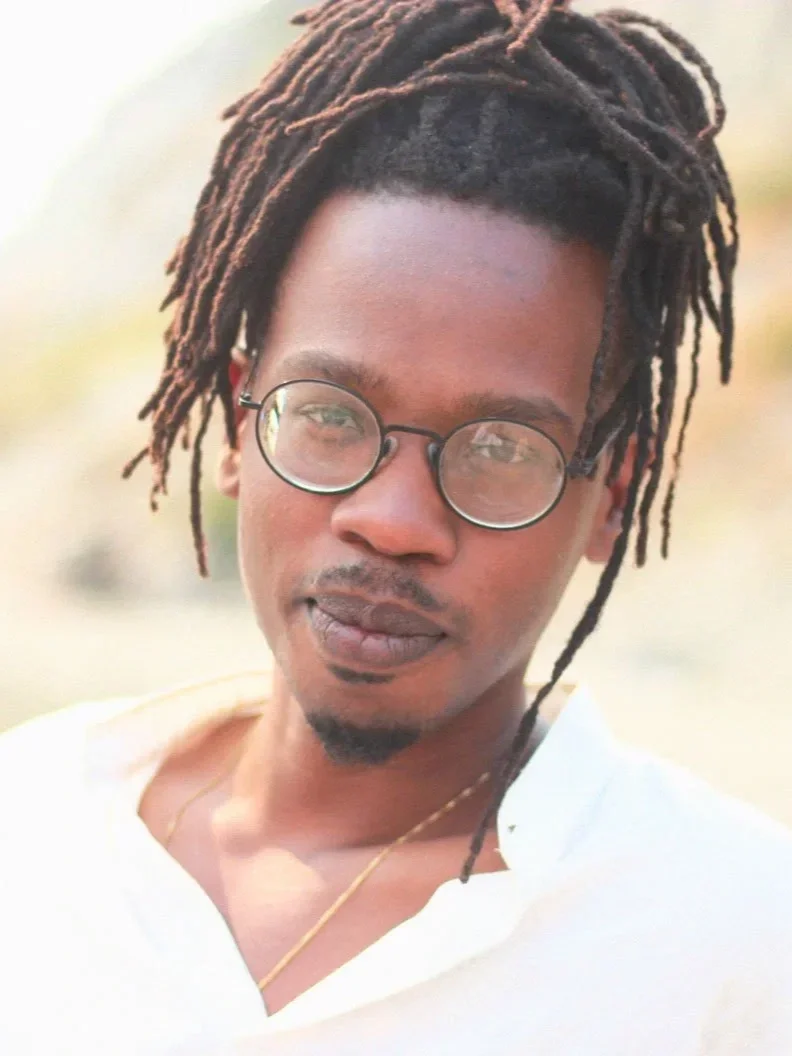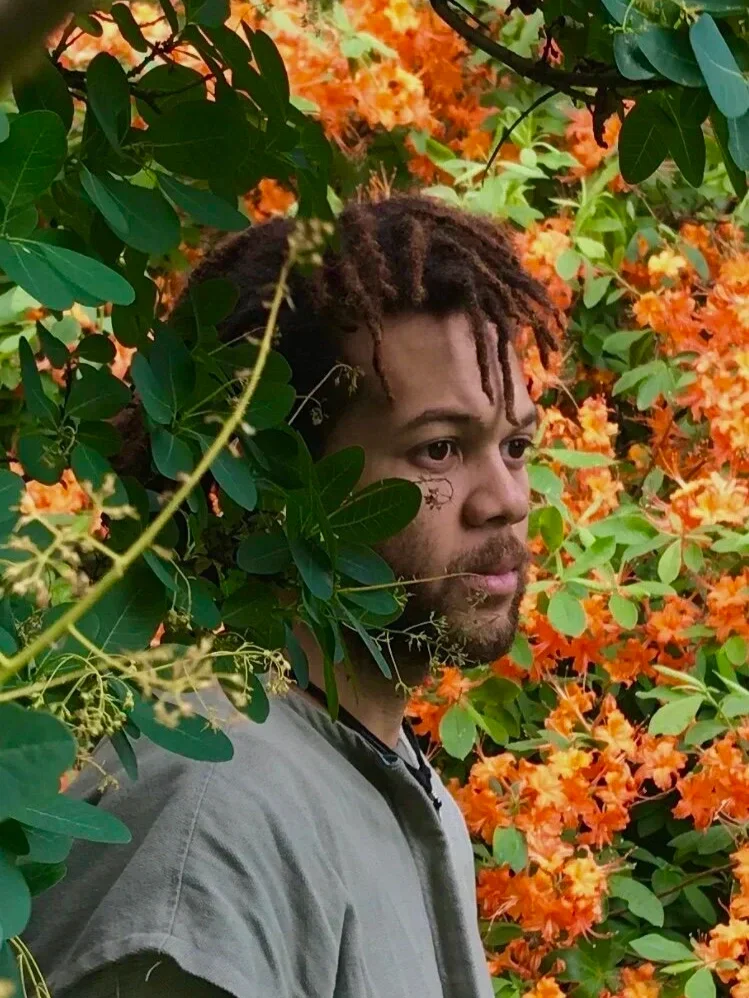
Chicago

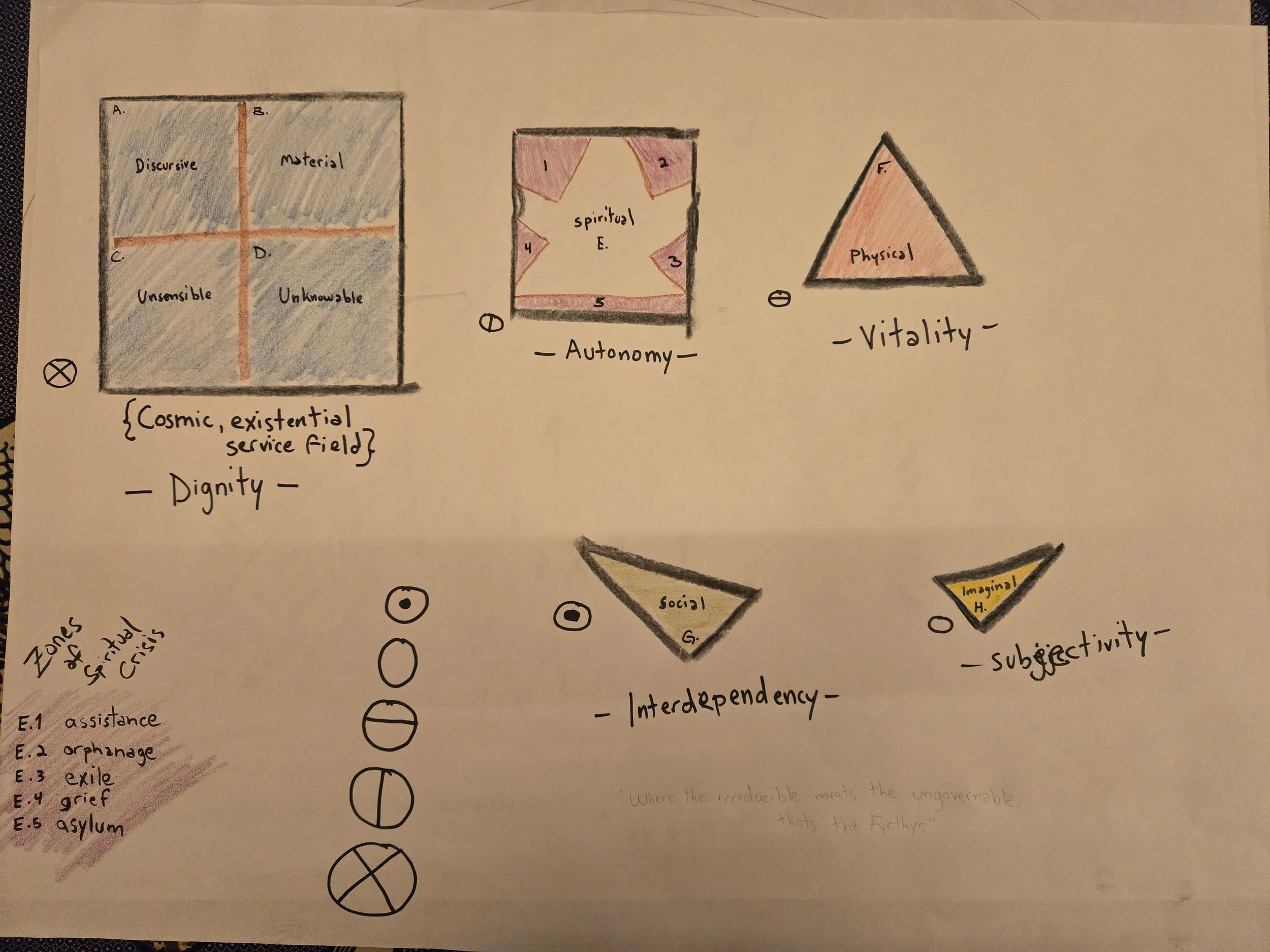
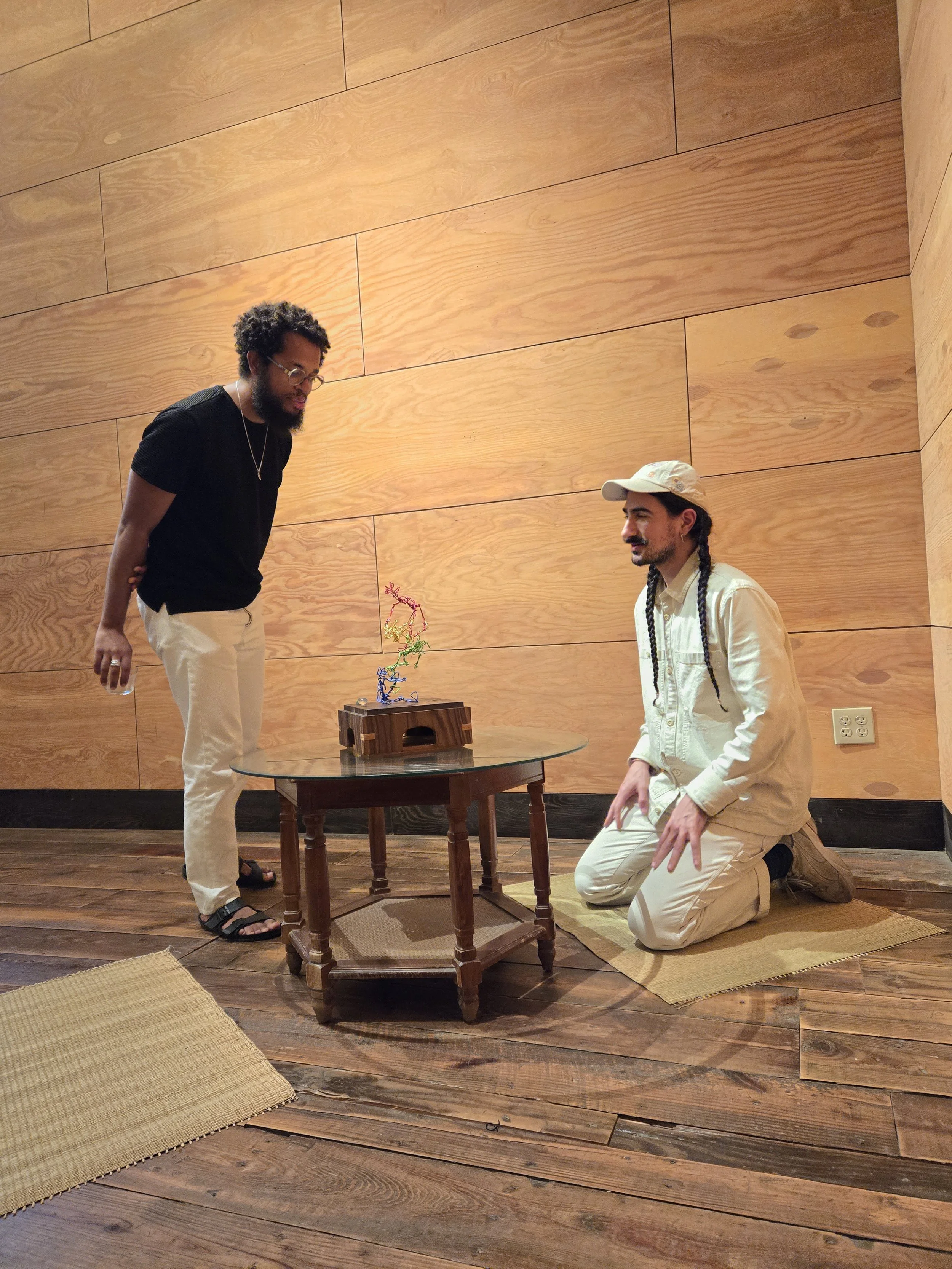




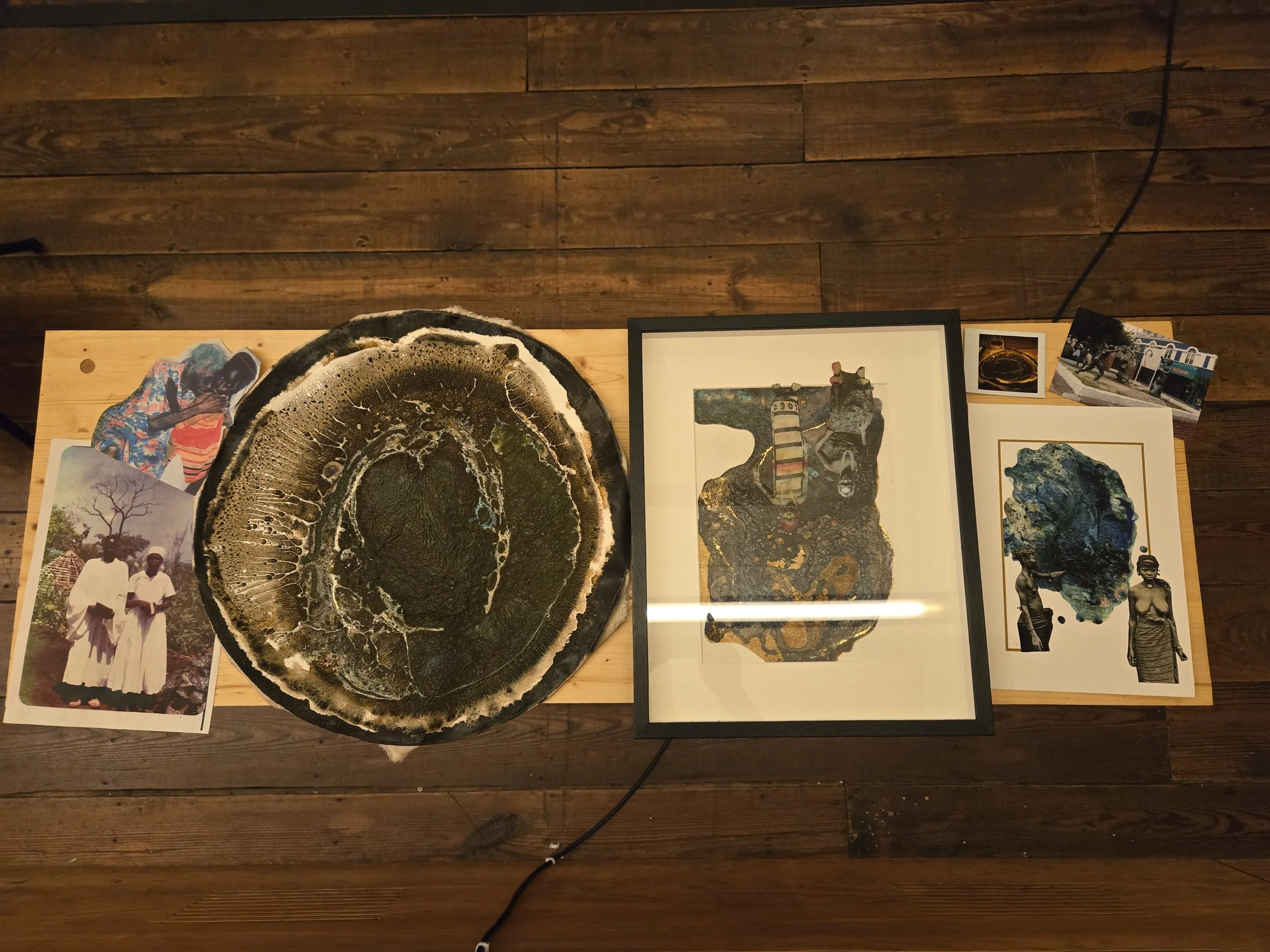

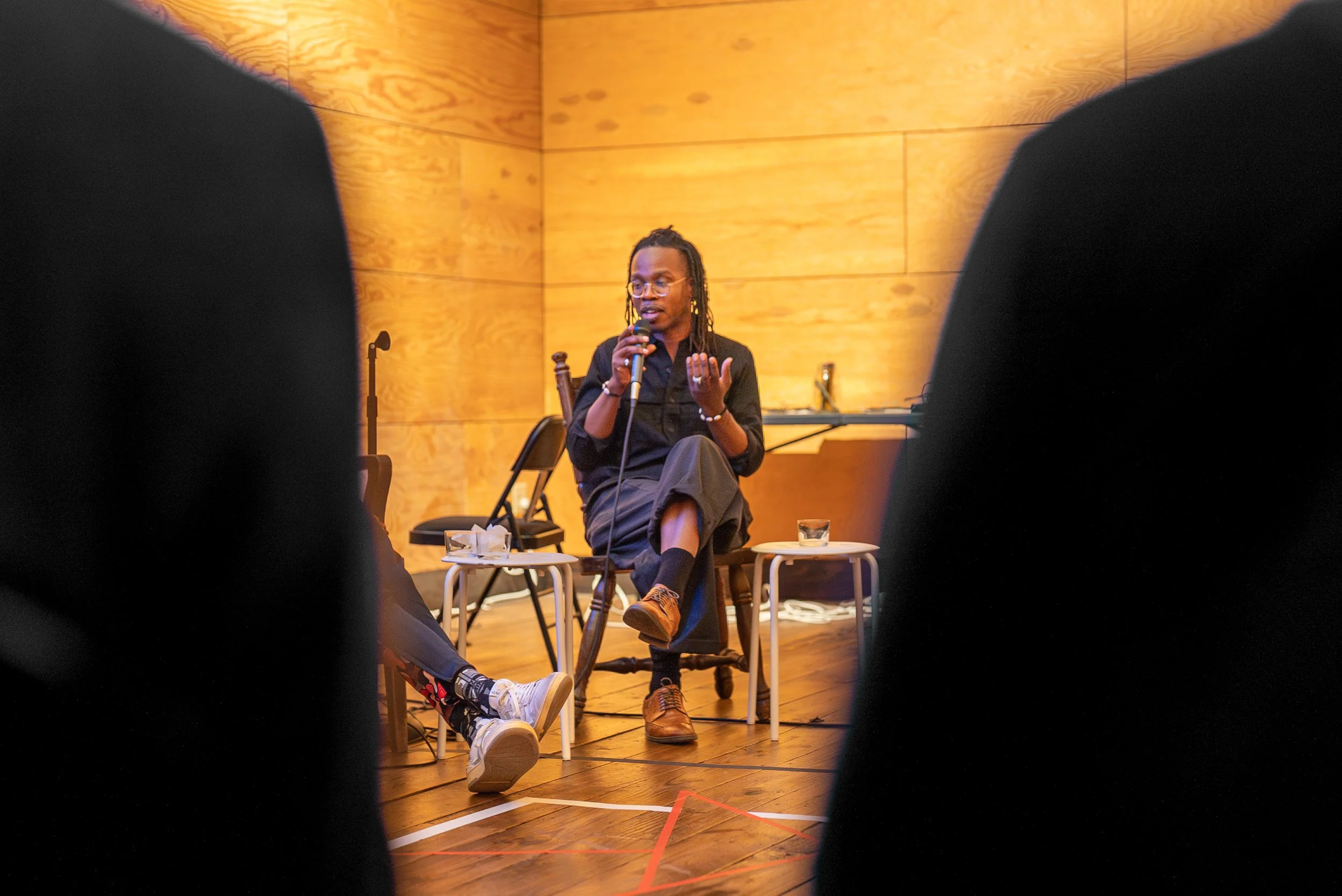
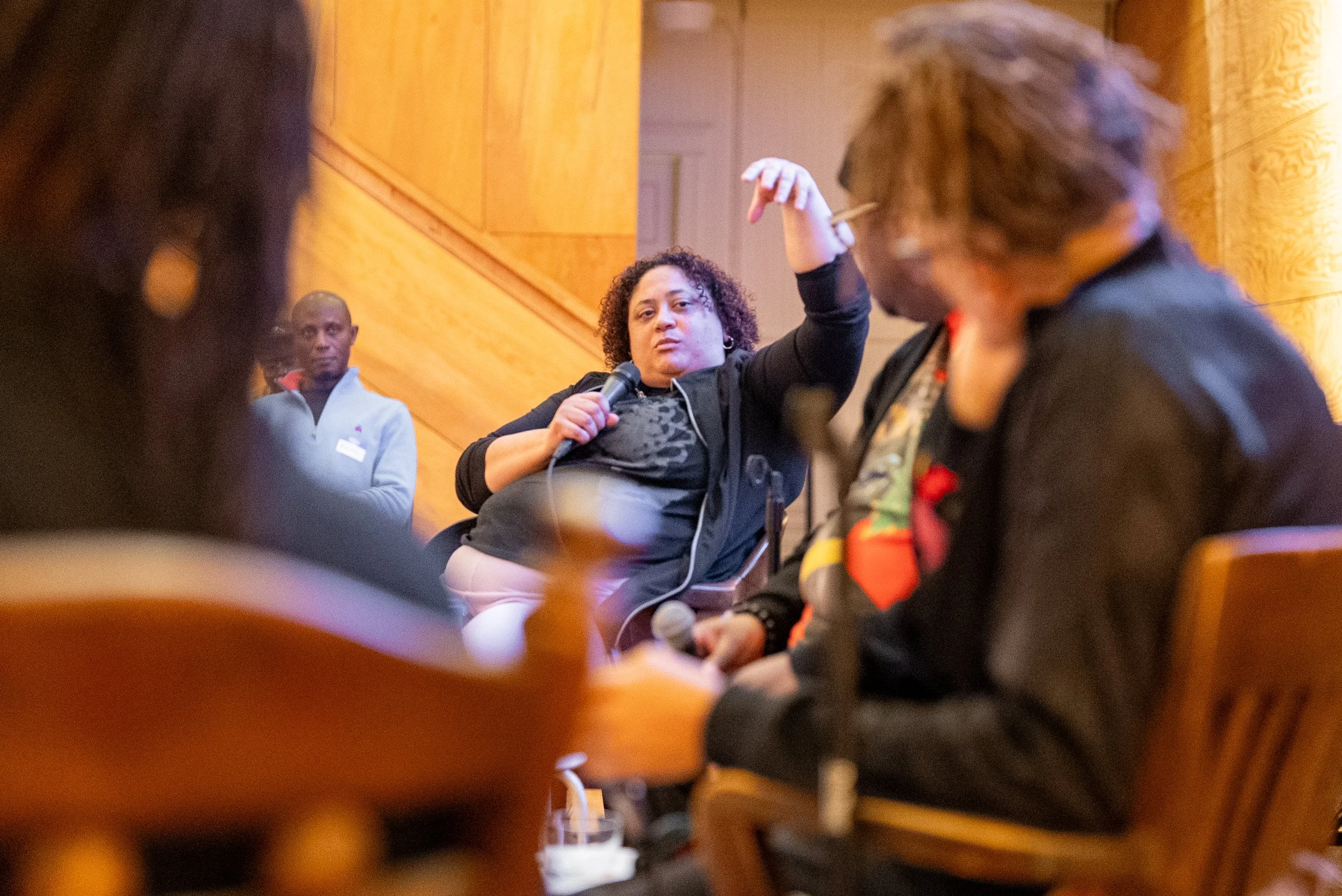
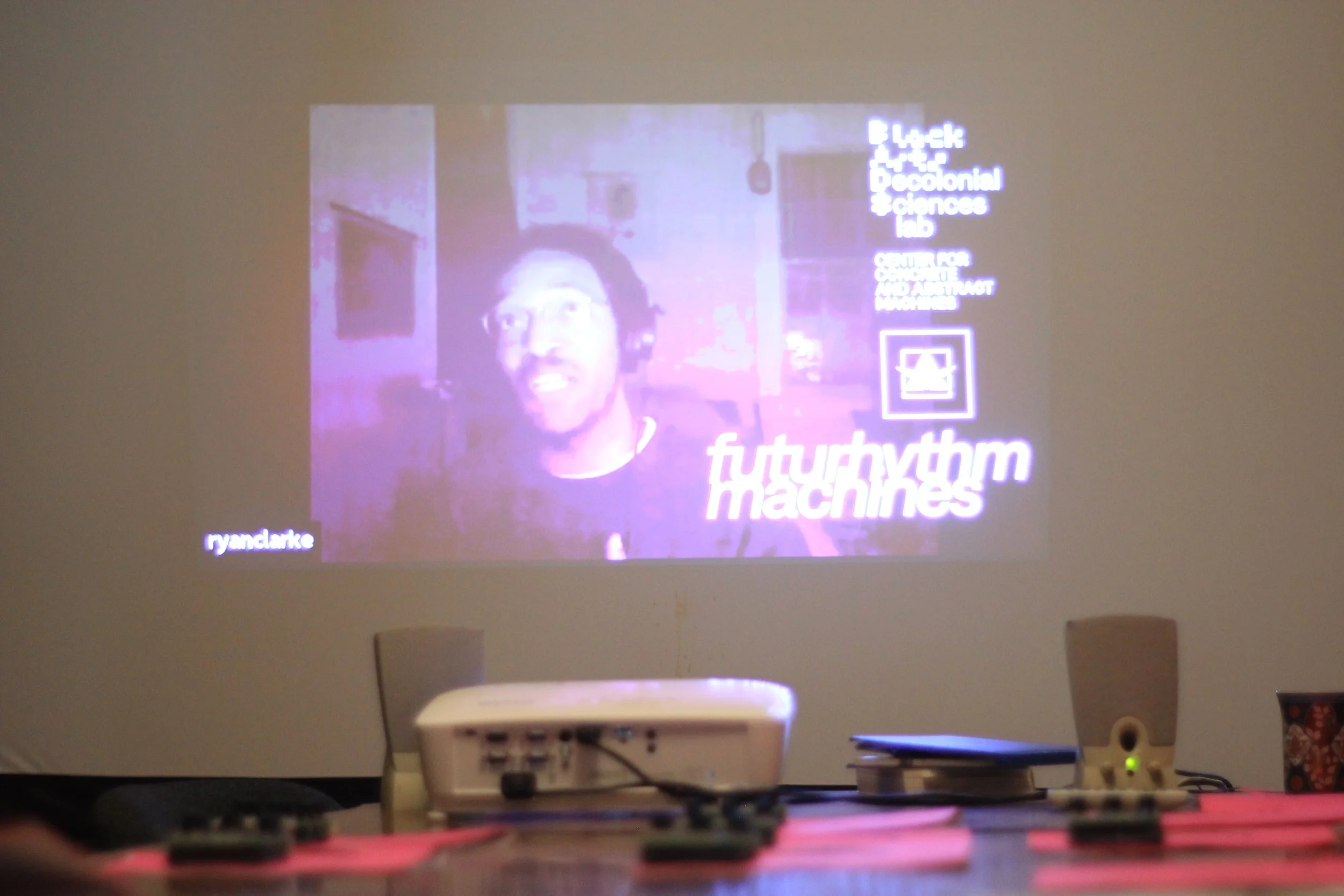
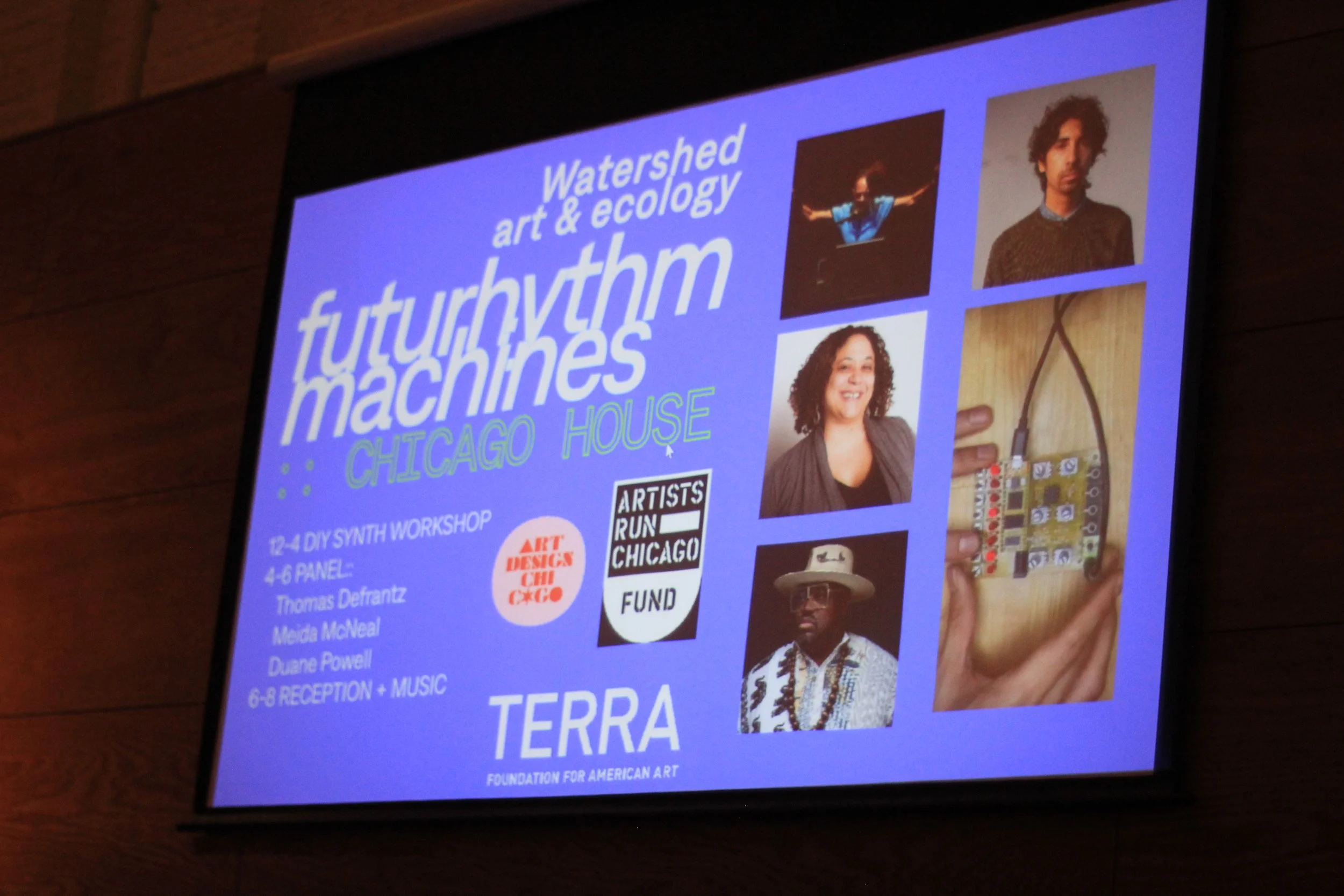
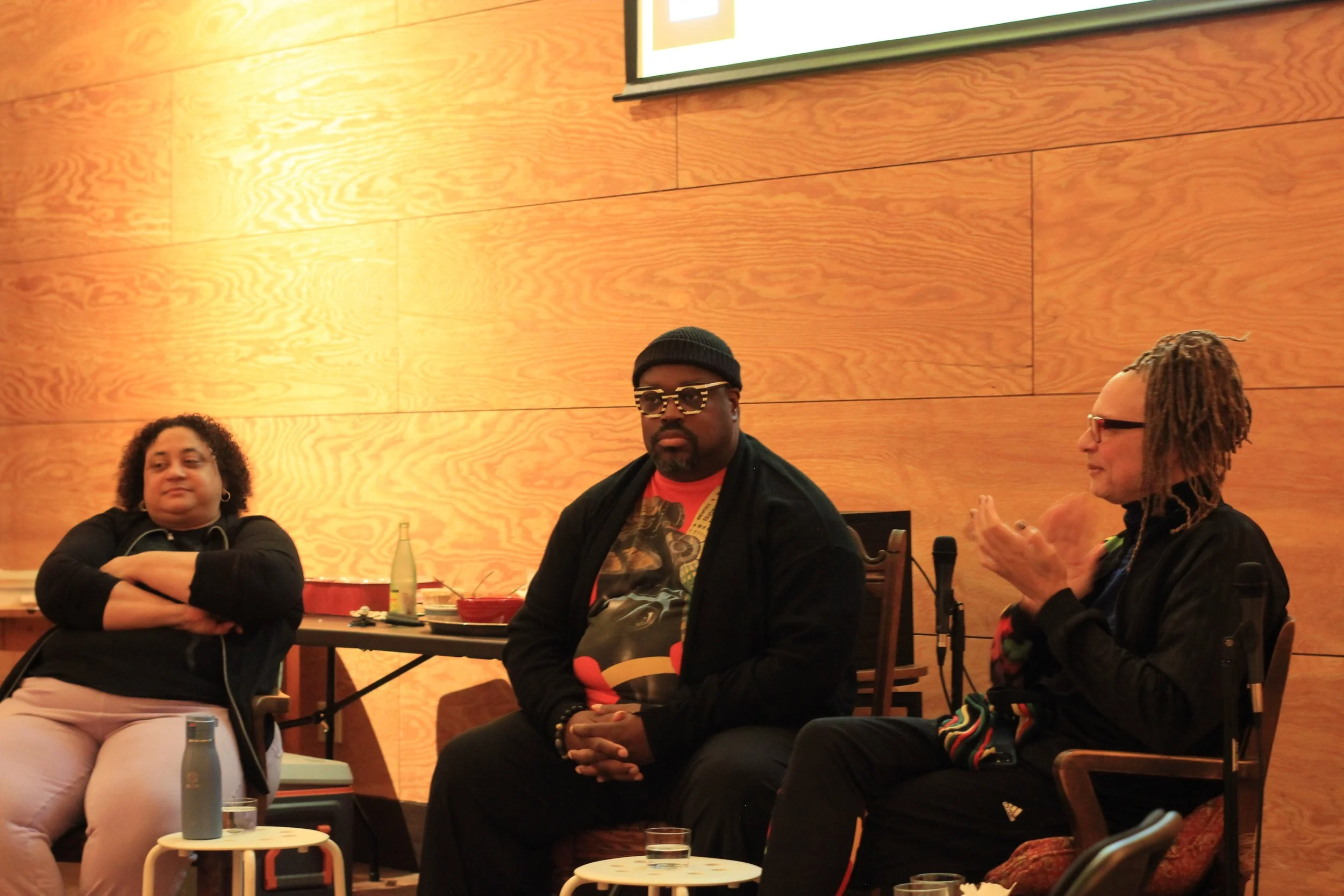
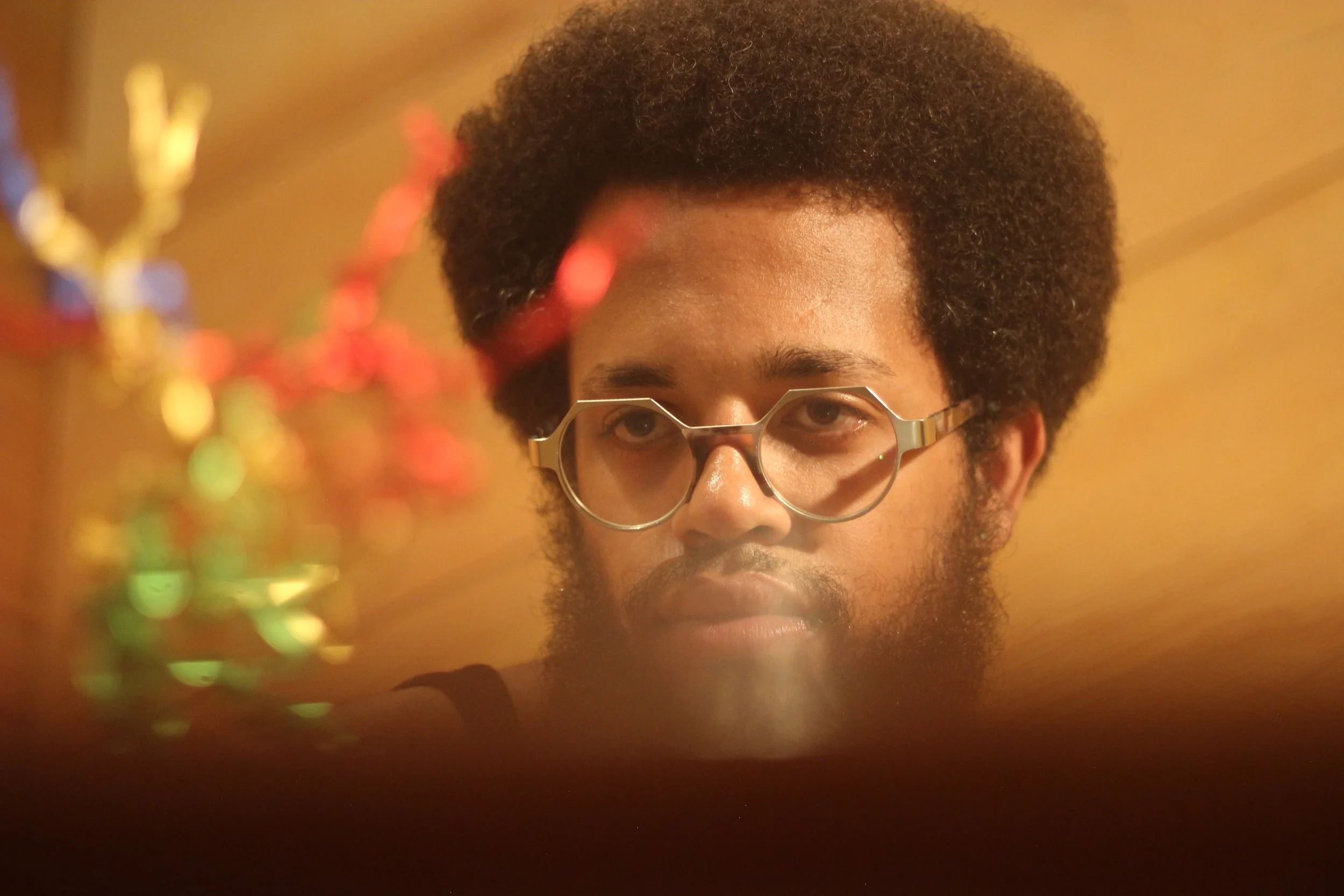
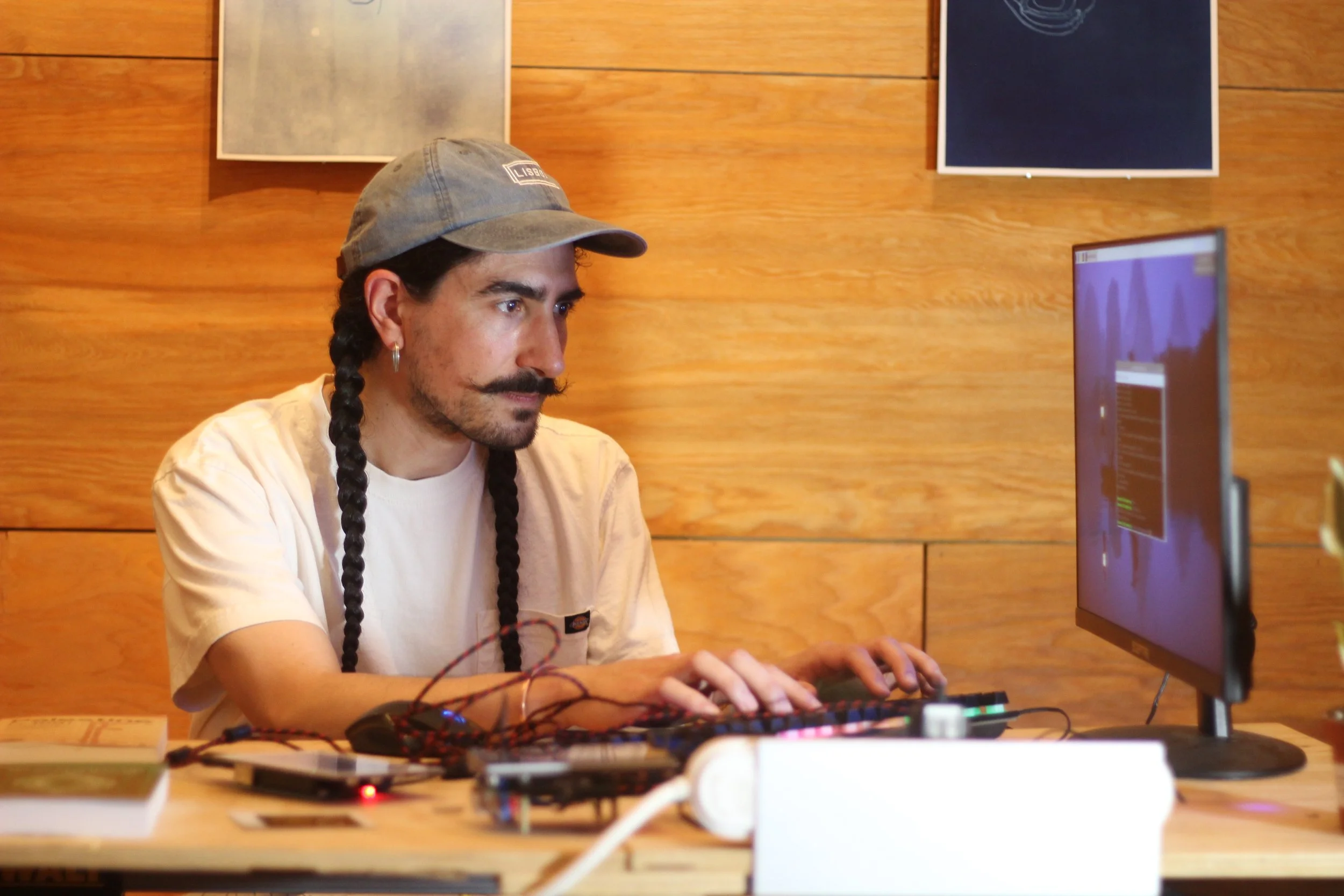
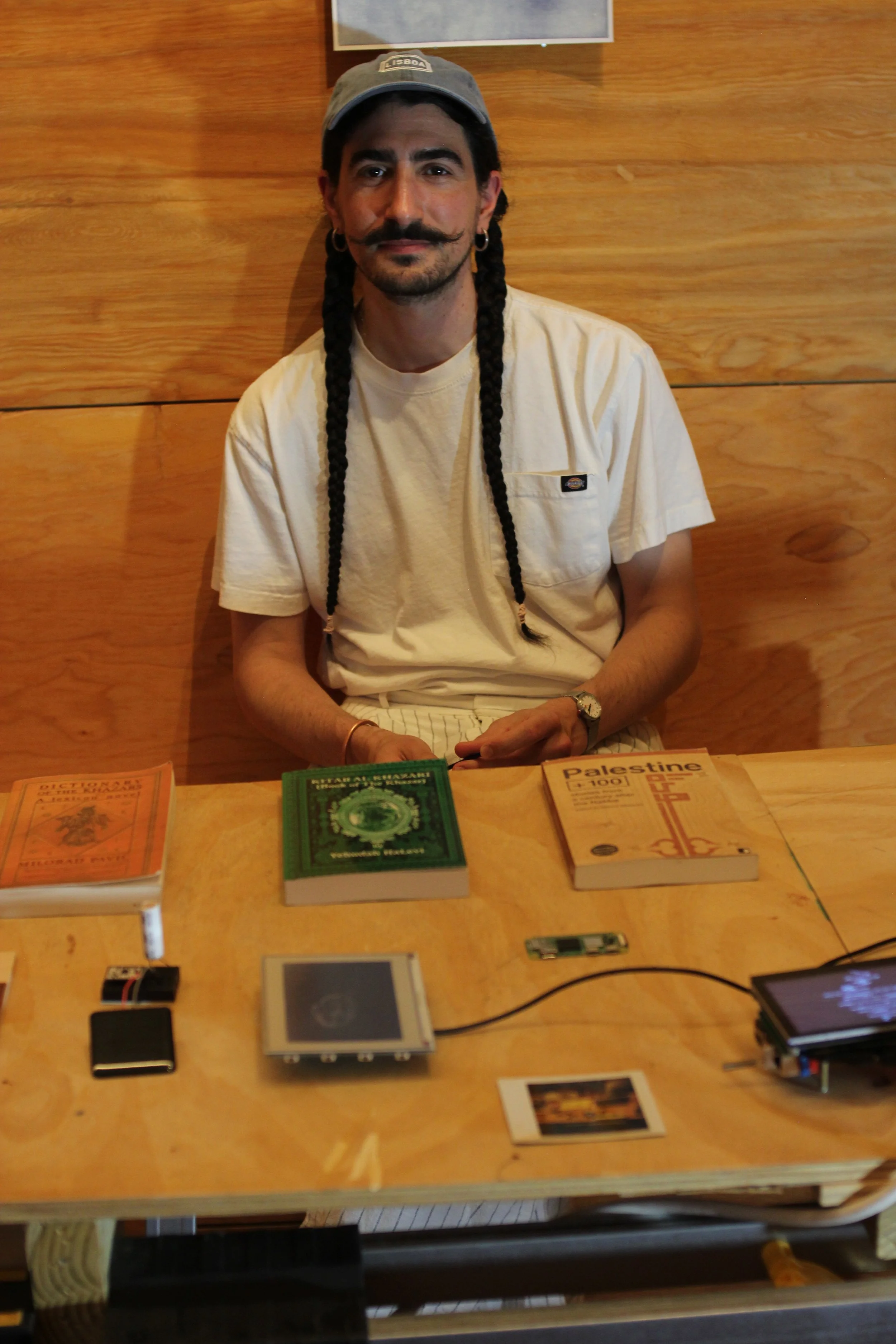
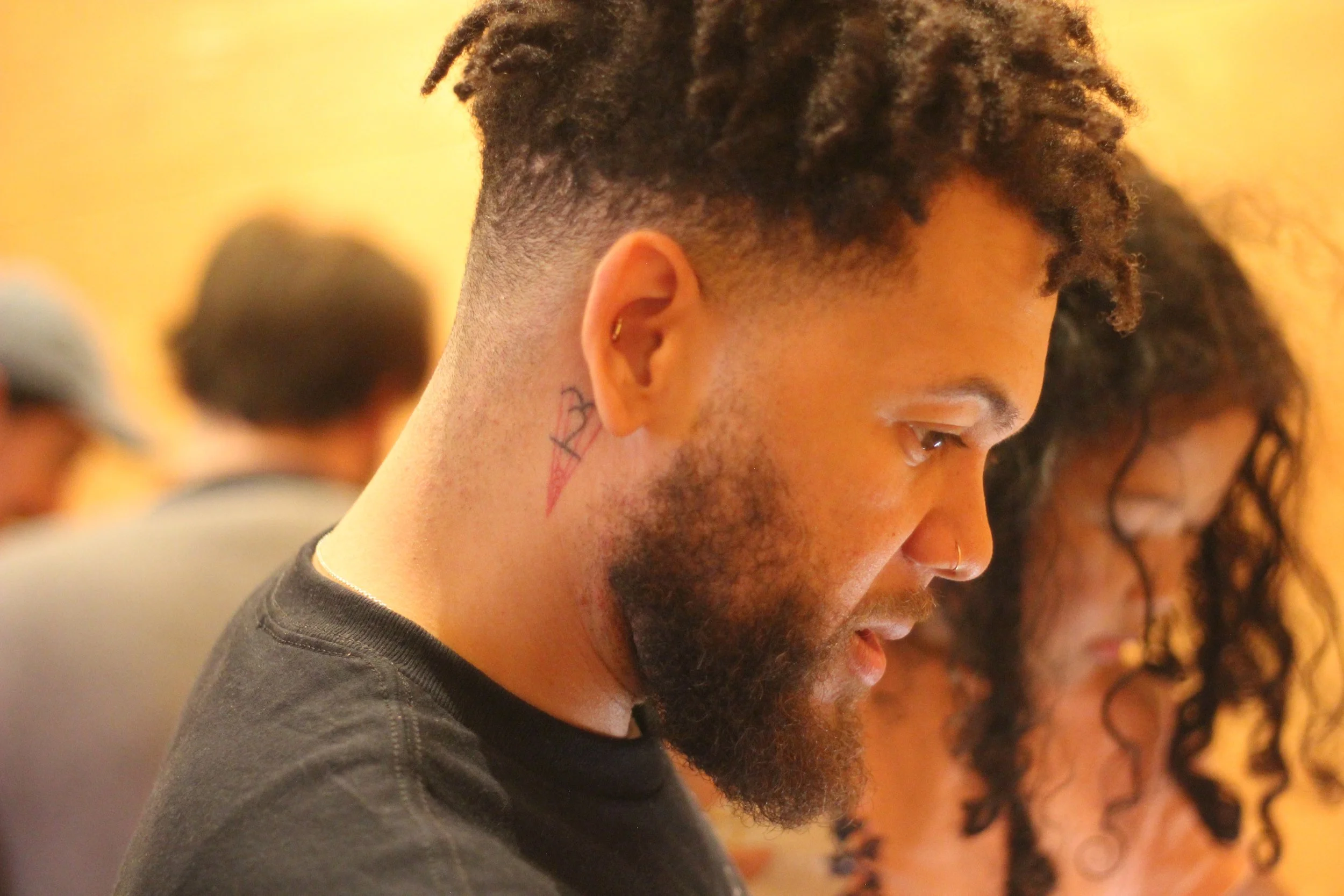
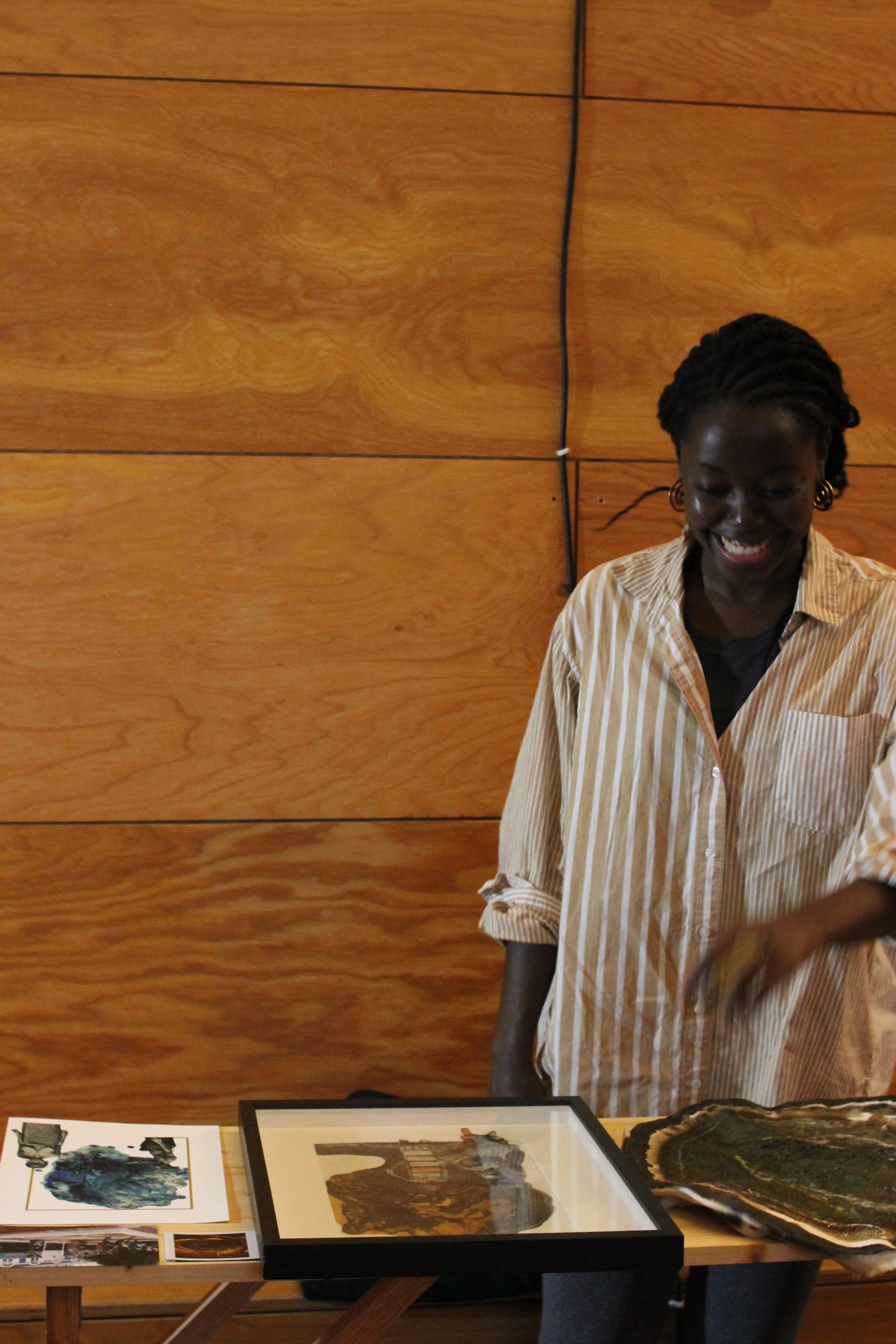
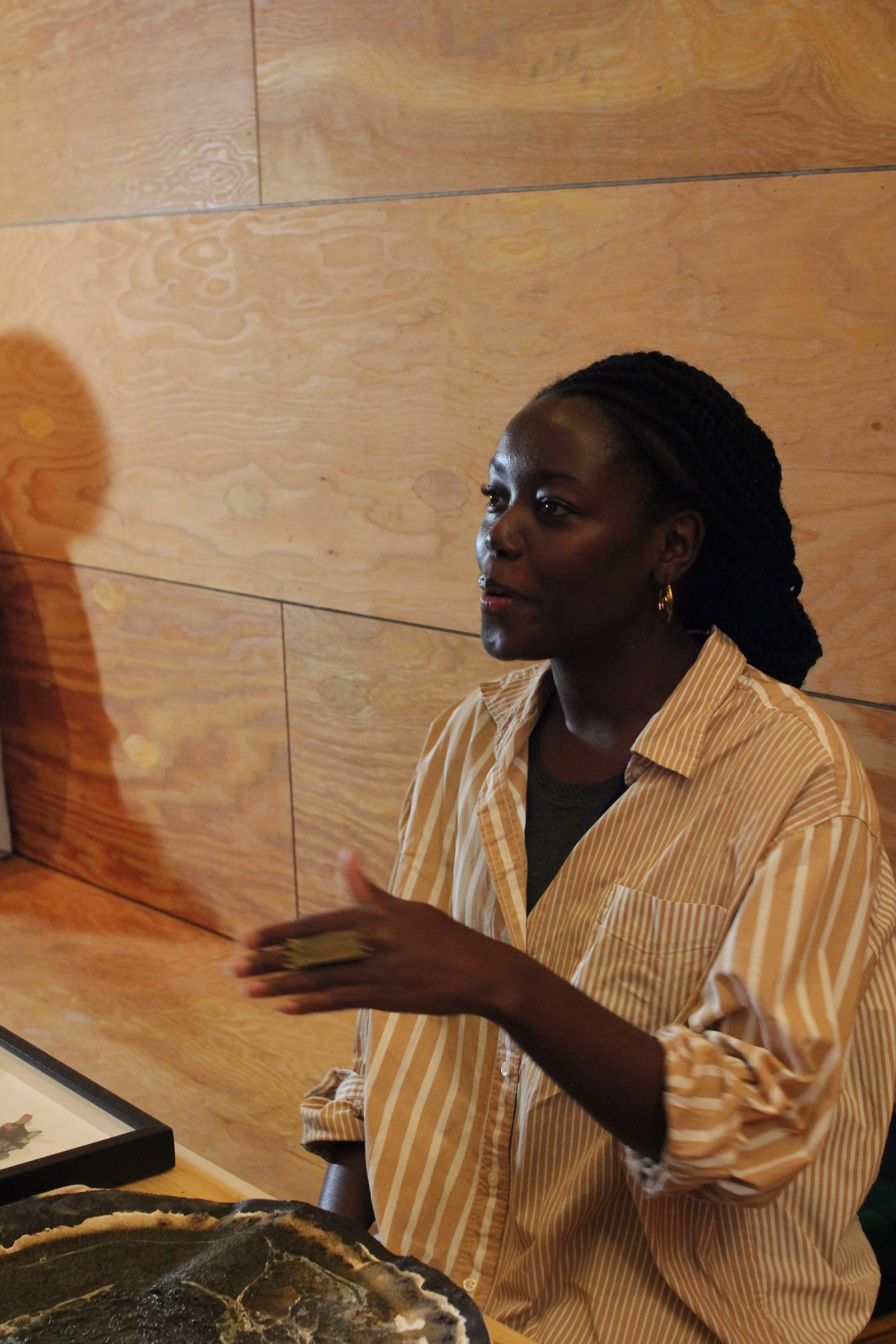
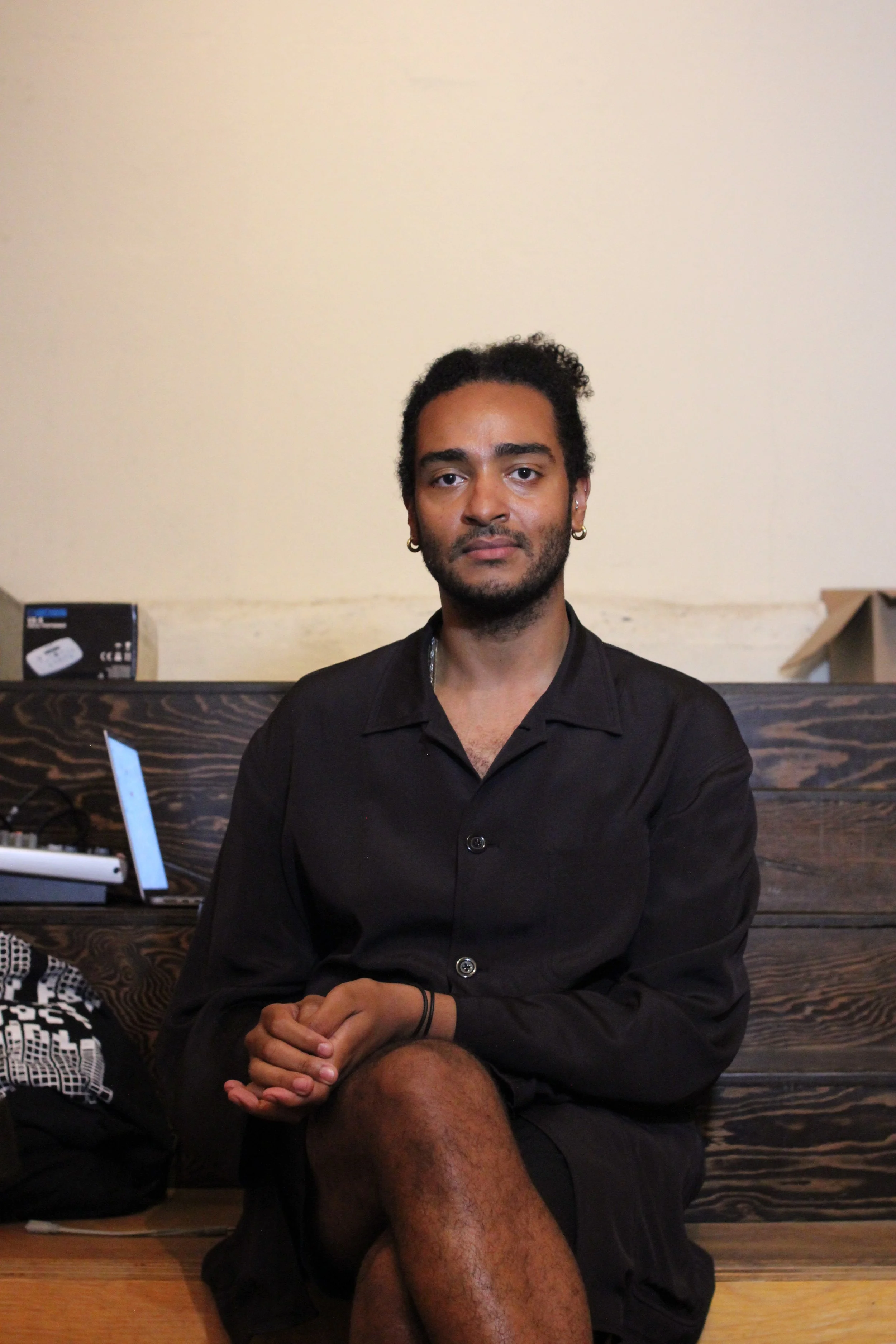
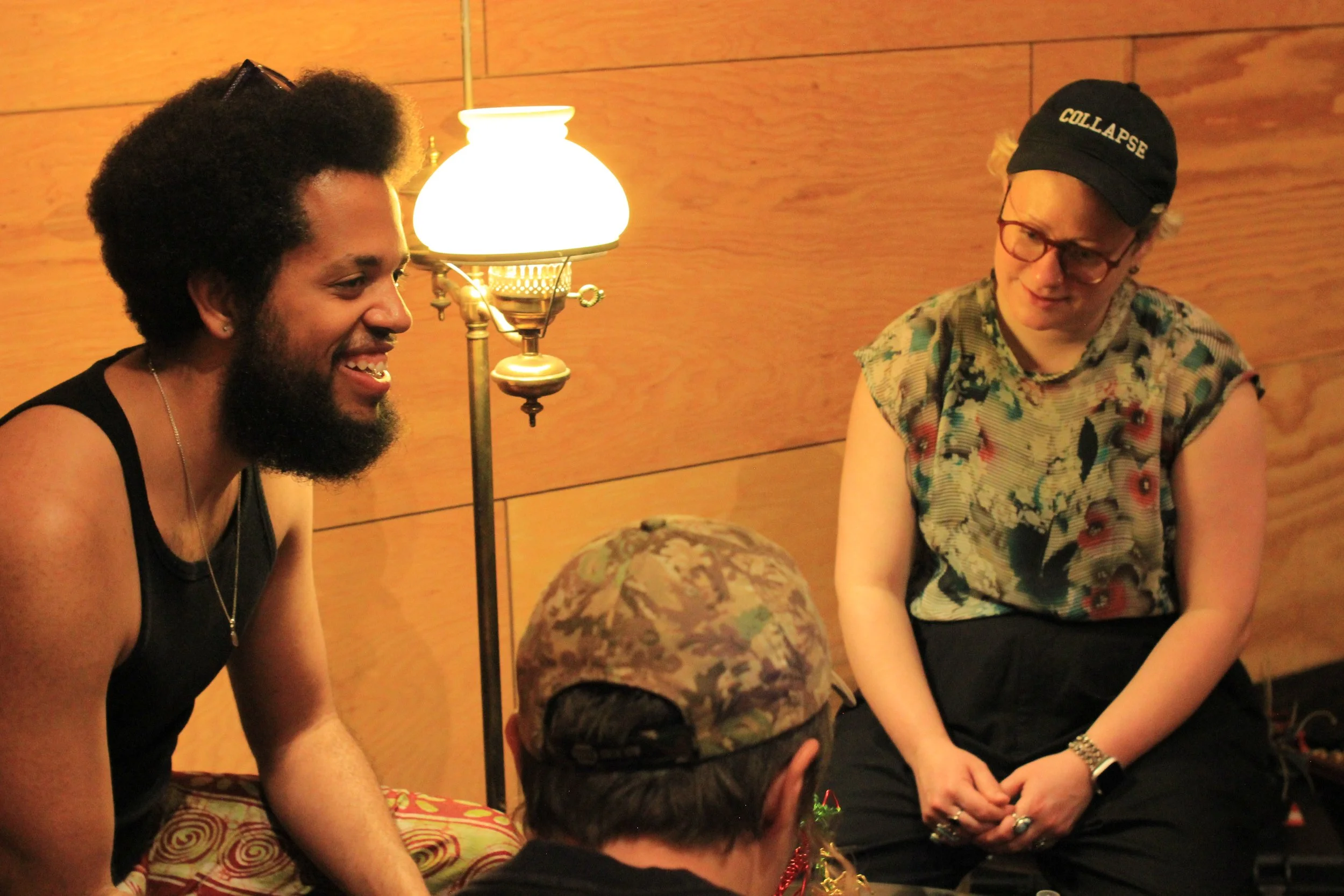
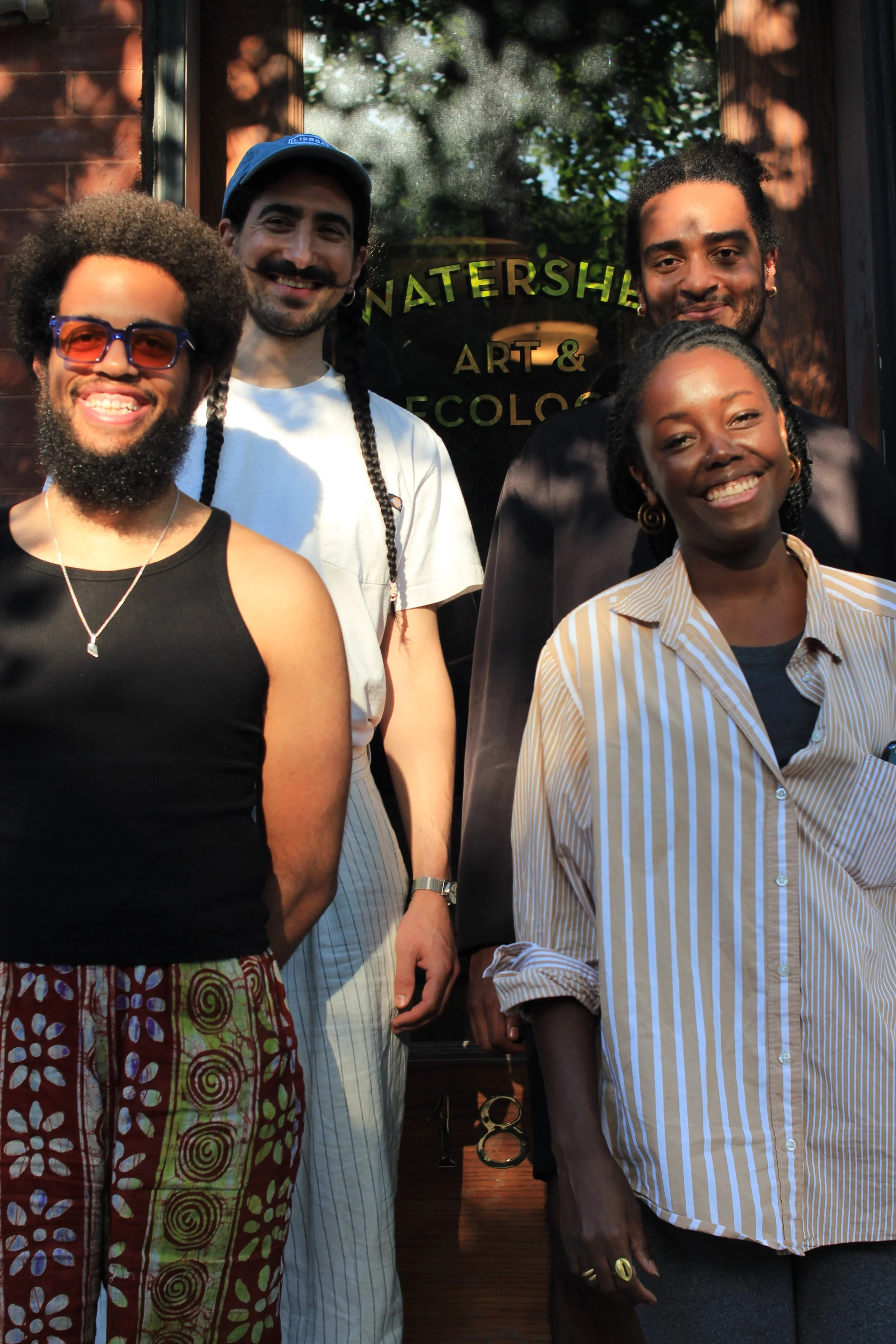

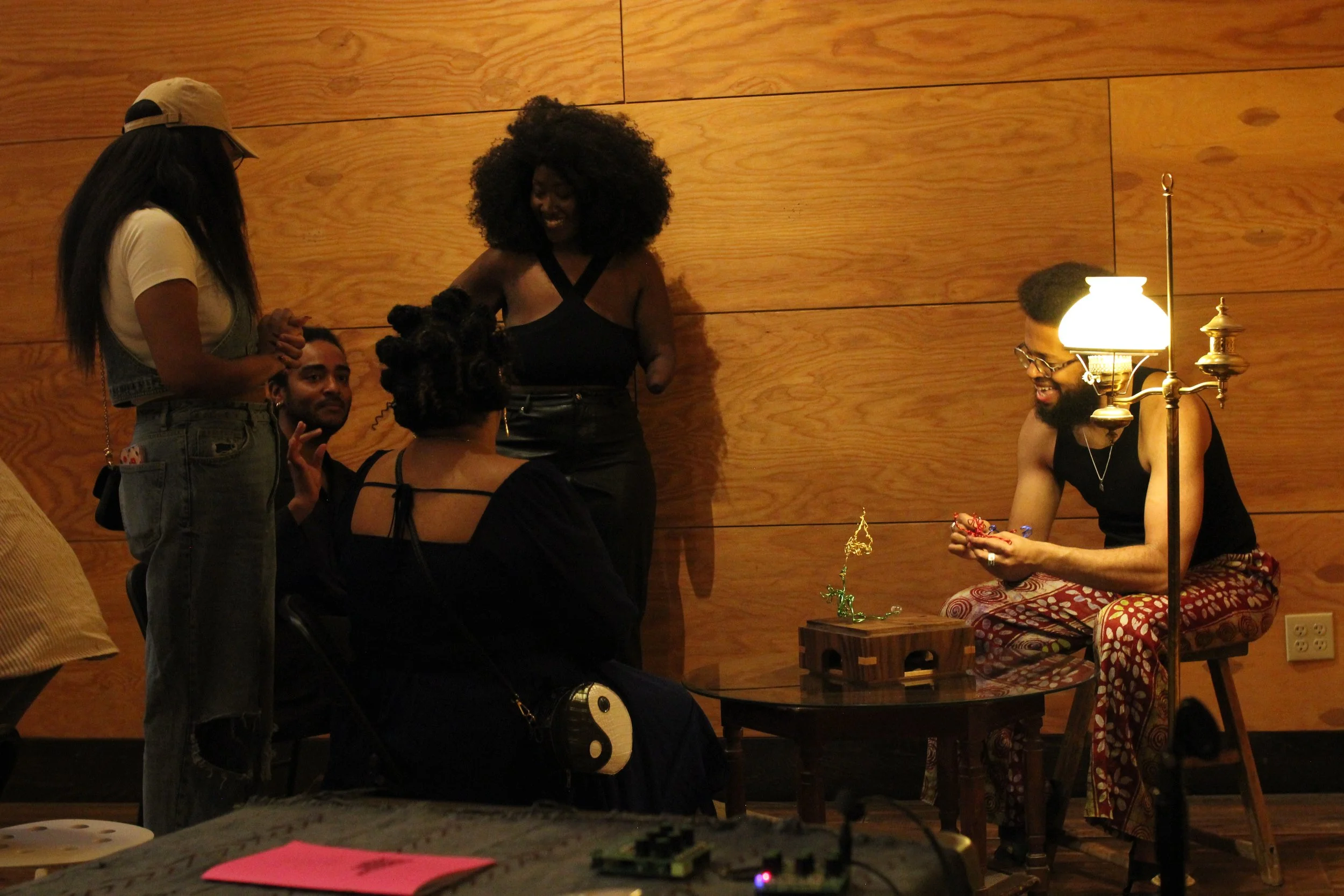
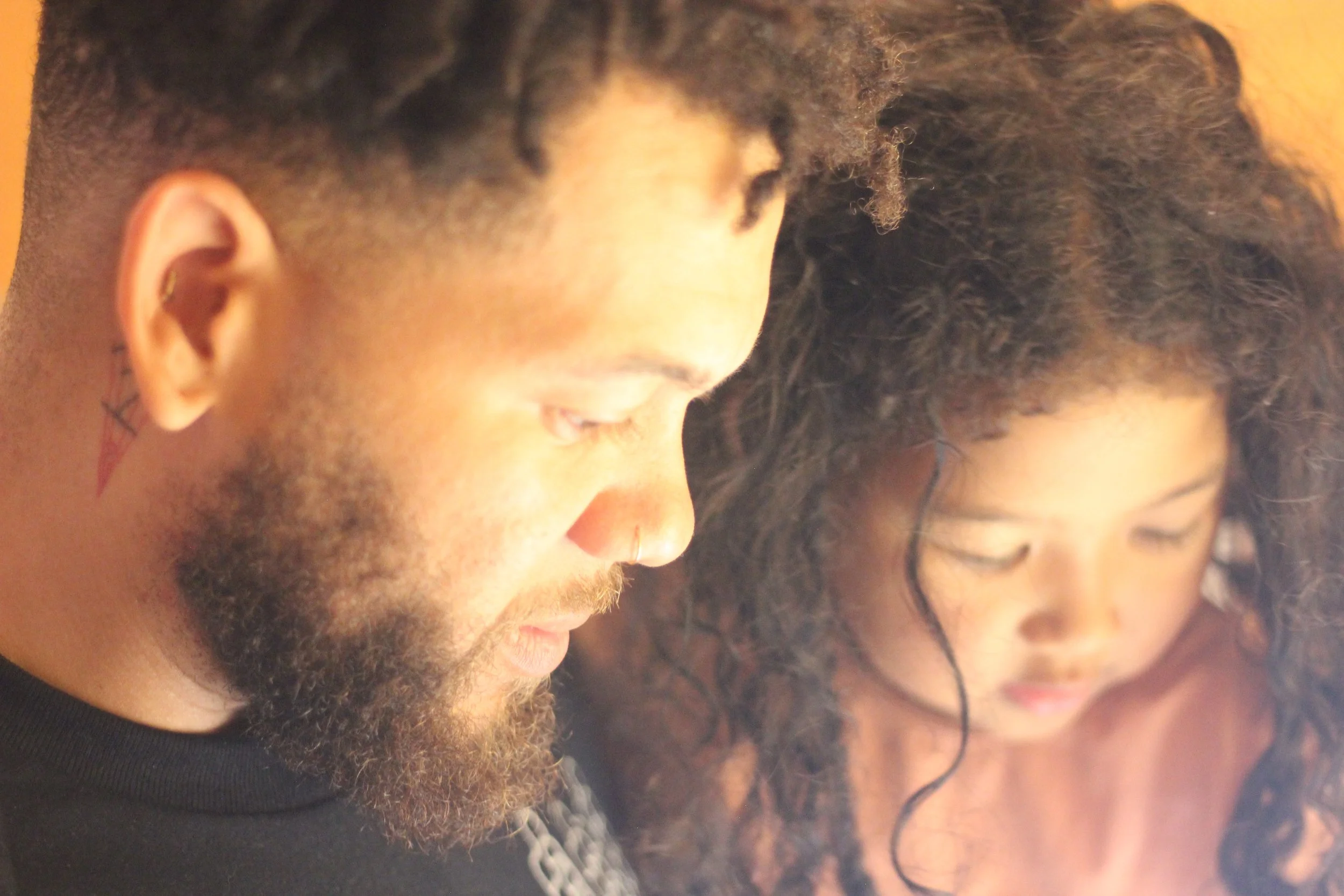
Founder’s Note
In May 2024, I brought together a diverse cohort of artists, researchers, and thinkers committed to exploring decolonial approaches to art and science. Rooted in a kinmaking ethos, world-building practices, and a wayfinding aesthetic, this inaugural BADS_lab operated as an experimental space for creative inquiry. The lab interrogated colonial practices of brutalization and specialization while fostering a collective reimagining of how beings and systems might be approached with care and plurality. Key themes included coloniality and decoloniality, brutality and fugitivity, and futurity and ancestrality, examined through collaborative experiments, public discussions, and immersive art research.
2024 Fellows
Ladipo Famodu
Wire Characters and the Liberation of Play
Ladipo’s work centered on malleable “wire characters,” dynamic sculptures that resist rigid representation. His practice critiqued the power of systems — scientific, linguistic, or societal — to reduce life’s complexity into controllable models. By inviting participants into playful, improvisational engagements, Ladipo created a space for collective rethinking of constraints, highlighting the transformative potential of collaborative storytelling and physical interaction.
Nimrod Astarhan
Speculative Computation and Cultural Fragility
Nimrod reimagined computation as grounded in ecological and cultural rhythms, challenging the abstraction of modern techno-science. Drawing from the speculative lineage of the Khazar kingdom, they designed a fragile computational prototype that responded to energy limitations with deep yet playful cultural symbolism, such as an evil eye emoji. This work critiqued extractive systems and proposed a slow, intentional engagement with technology.
Jared Brown
Rhythms of Resistance and Sonic Sanctuary
Through sound and rhythm, Jared explored the interplay of resistance and healing within Black American subcultures. Their work emphasized the transformative power of collective rhythm, creating sonic spaces that oscillate between calm and chaos. As their DJ persona, girly***, Jared’s performance during the Futurhythmachines event invoked the liberatory ethos of Chicago House Music, fostering connection and collective care.
Letaru Dralega
Scarred Histories and Metaphysical Belonging
Letaru’s practice used collage, sound, and texture to explore memory, postcolonial wounds, and speculative belonging. Inspired by African and Afrodiasporic ontologies, her gold-leafed, scar-like patterns transformed historical ruptures into sites of beauty and reflection. Letaru’s work proposed that belonging emerges not by erasing fractures but by navigating their complexities with openness and creativity.
Key Events
Public Talks
Opening Lecture: De-/Re-Constructing Worlds - I framed the lab’s objectives, inviting participants to question colonial paradigms of knowledge production and explore speculative alternatives.
TJ Demos: Gaza: Colonial Violence, Ecocide, and Survival Media - Demos connected colonial violence with environmental and media activism, offering critical insights into the intersections of ecological and political struggle.
The Therapeutic Imagination: A community dialogue exploring the potential for rebirth through creative resistance and collective care.
Futurhythmachines: Chicago House
This daylong event celebrated the cultural and sonic legacies of Chicago House Music.
DIY Synth Workshop: Participants crafted modular synths, exploring music-making as a communal, experimental practice.
Panel Discussion: Scholars and artists, including Thomas DeFrantz, Meida McNeal, and DJ Duane Powell, reflected on House Music’s role as a maroon space for Black joy and resistance.
Reception and DJ Set: girly***’s performance embodied the event’s ethos, merging memory and liberation through sound.
Studio Hours
Participants engaged in collaborative sketches and experiments during closed studio hours and opened their processes to the public in open studio hours, fostering dialogue and participation.
Public Showcase & Closing Reception
On May 18, fellow residents reflected on their work with the public, presenting their sketches and experiments. This closing event highlighted the provisional, process-oriented nature of BADS_lab, emphasizing inquiry over resolution.
Thanks to drum machines, sound systems, and repurposed warehouses and basements, 1980s Chicago House Music opened up a future that was Black, brown, and queer. DJs invented new ways of keeping and marking time in community. In the years since, computation has made music-making more accessible. What kinds of collectivities are still to come?
Combining complementary modes of thinking, making, and performing, Futurhythmachines: House (FRM:House) was a daylong public event organized during BADS_lab 2024. It featured a DIY synthesizer workshop, a panel discussion, and a DIY synth performance with reception.
FRM:House reflected on social forms, expressive technics, and musical experience through Chicago House Music—discovering therein an art of forming fugitive publics and a science of probing sonic ecologies.
In preparation for the event, BADS_lab director Muindi Fanuel Muindi interviewed three critical thinkers about Black Electronic Dance Music in general, and Chicago House specifically.
- Dhanveer Singh Brar is a researcher focused on histories of Black diasporic culture and politics from the mid-twentieth century onward. His work approaches these histories through artistic experimentation with sound and the politics of intellectual production, attending to the relationships between popular and experimental music, art practice, cinema, publishing, and political organization. He is the author of Beefy’s Tune (Dean Blunt Edit) (The 87 Press) and Teklife, Ghettoville, Eski: The Sonic Ecologies of Black Music in the Early Twenty-First Century (Goldsmiths Press / MIT Press), along with numerous articles in journals such as Social Text, South Atlantic Quarterly, and New Formations.
- Ryan Clarke is a tonal geologist based in New Orleans, Louisiana. Along with Frankie Decaiza Hutchinson and Enyo Amexo, Clarke is a co-curator and organizer of Dweller Festival, a Brooklyn-based platform centering Black electronic artists. He also co-edits the affiliated Dweller Electronics blog.
- RA Judy is Professor of Critical and Cultural Studies at the University of Pittsburgh. He is the author of [Dis]forming the American Canon: African-Arabic Slave Narratives and the Vernacular (Minnesota, 1992)—which included the first translation of the early nineteenth-century Ben Ali Arabic manuscript—and Sentient Flesh: Thinking in Disorder, Poiesis in Black (Duke), recipient of the 2023 Truman Capote Award for Literary Criticism. His essays include “Kant and the Negro,” “The Question of Nigga Authenticity,” “Fanon’s Body of Black Experience,” “On W.E.B. Du Bois and Hyperbolic Thinking,” “Sayyid Qutb’s fiqh al-wāqi’ī, or New Realist Science,” “For Dignity: Tunisia and the Poetry of Emergent Democratic Humanism,” and “Restless Flying: A Black Study of Revolutionary Humanism.”
Futurhythmachines:
House
2024 FELLOWS
-
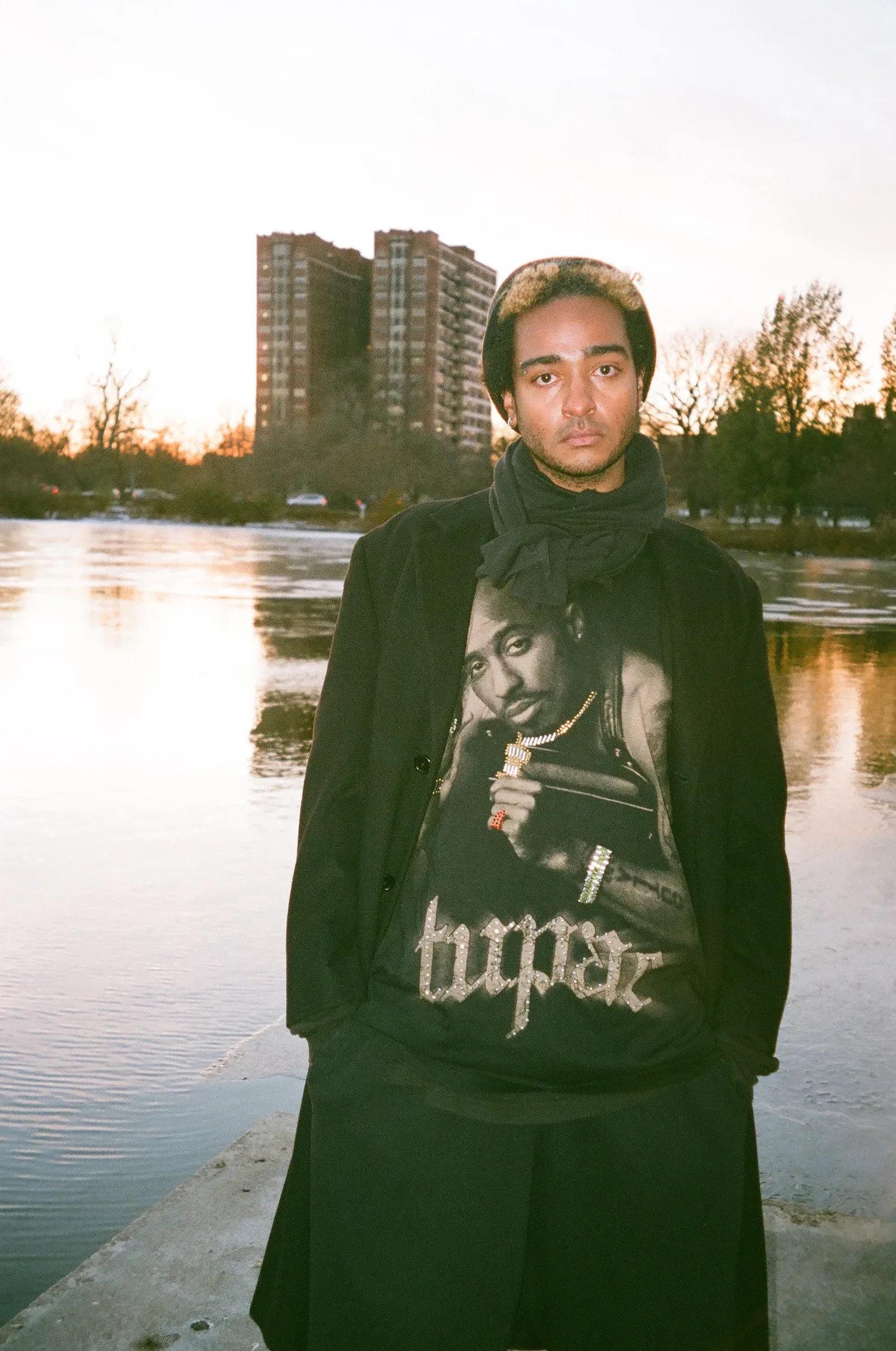
Jared Brown
FELLOW
Jared Brown is an interdisciplinary artist born in Chicago. In past work, Jared broadcasted audio and text based work through the radio (CENTRAL AIR RADIO, 88.5 FM), in live DJ sets, and on social media. They consider themselves a data thief, understanding this role from John Akomfrah's description of the data thief as a figure that does not belong to the past or present. As a data thief, Jared Brown makes archeological digs for fragments of Black American subculture, history and technology. Jared repurposes these fragments in audio, performance, text, and video to investigate the relationship between history and digital, immaterial space. Jared Brown holds a BFA in video from the Maryland Institute College of Art and moved back to Chicago in 2016 in order to make and share work that directly relates to their personal history.
-
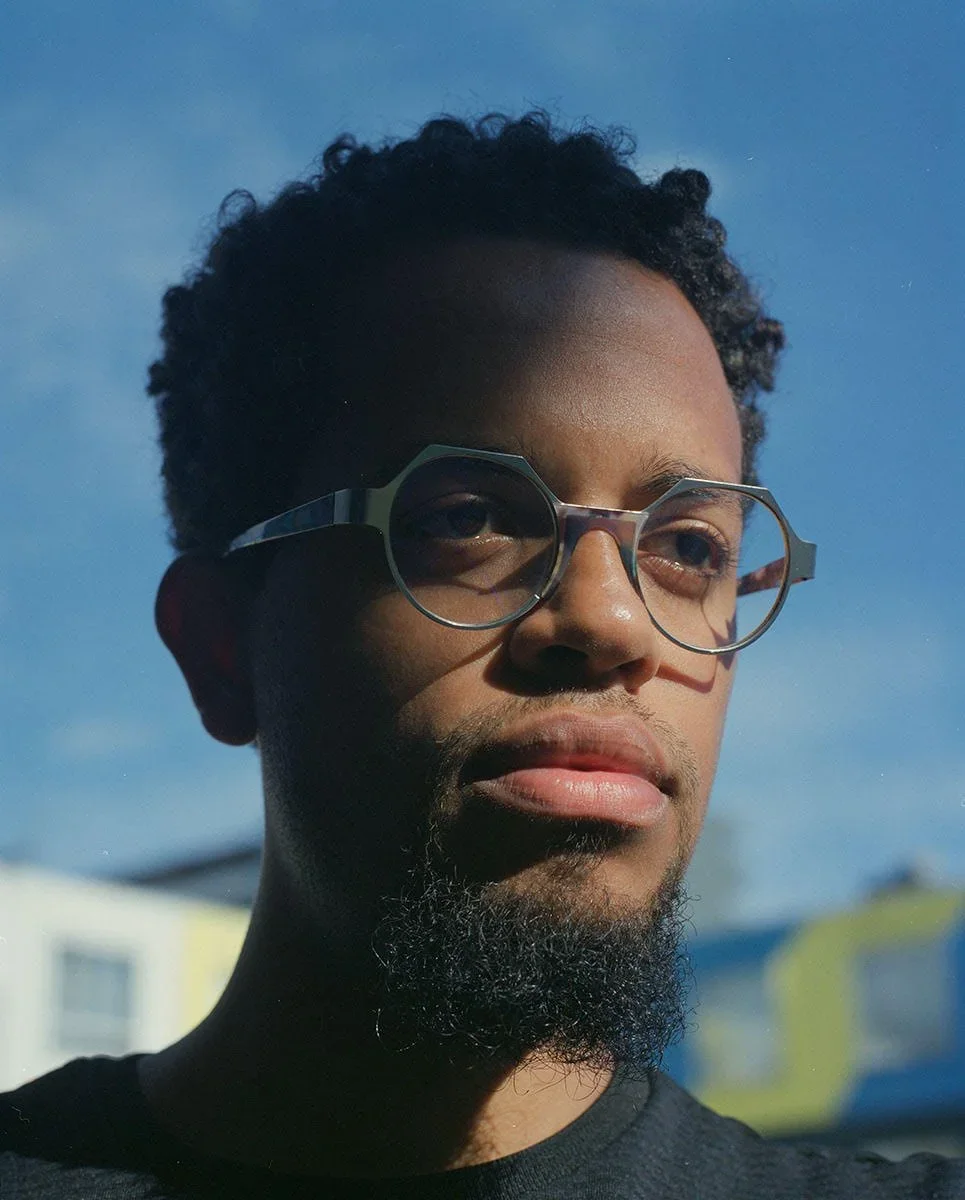
Ladipo Famodu
FELLOW
Ladipo Famodu is an artist, designer, chemist, and capoeirista. He is interested in kinaesthetic learning, where knowledge is exchanged through the manipulation of objects, or by moving one's body. Much of his work employs playfulness and surrealism in an attempt to undo the tethered logics of anti-blackness and modernity. He is currently working with wire sculpture, performance, and fine jewelry.
Ladipo received an MA in Design from the Sandberg Instituut (2022), and a BS in Chemistry from the University of Minnesota (2015). He was a recipient of the Holland Scholarship, and has been awarded a SPARK grant from the Chicago Artist Coalition. His work has been shown at the South Side Community art Center, Museum of Science and Industry, and he has contributed to the German Pavilion of the 2021 Venice Architecture Biennale. His writing has been featured in The Funambulist, and Antipode: A Radical Journal of Geography. Ladipo is currently based in Chicago.
-
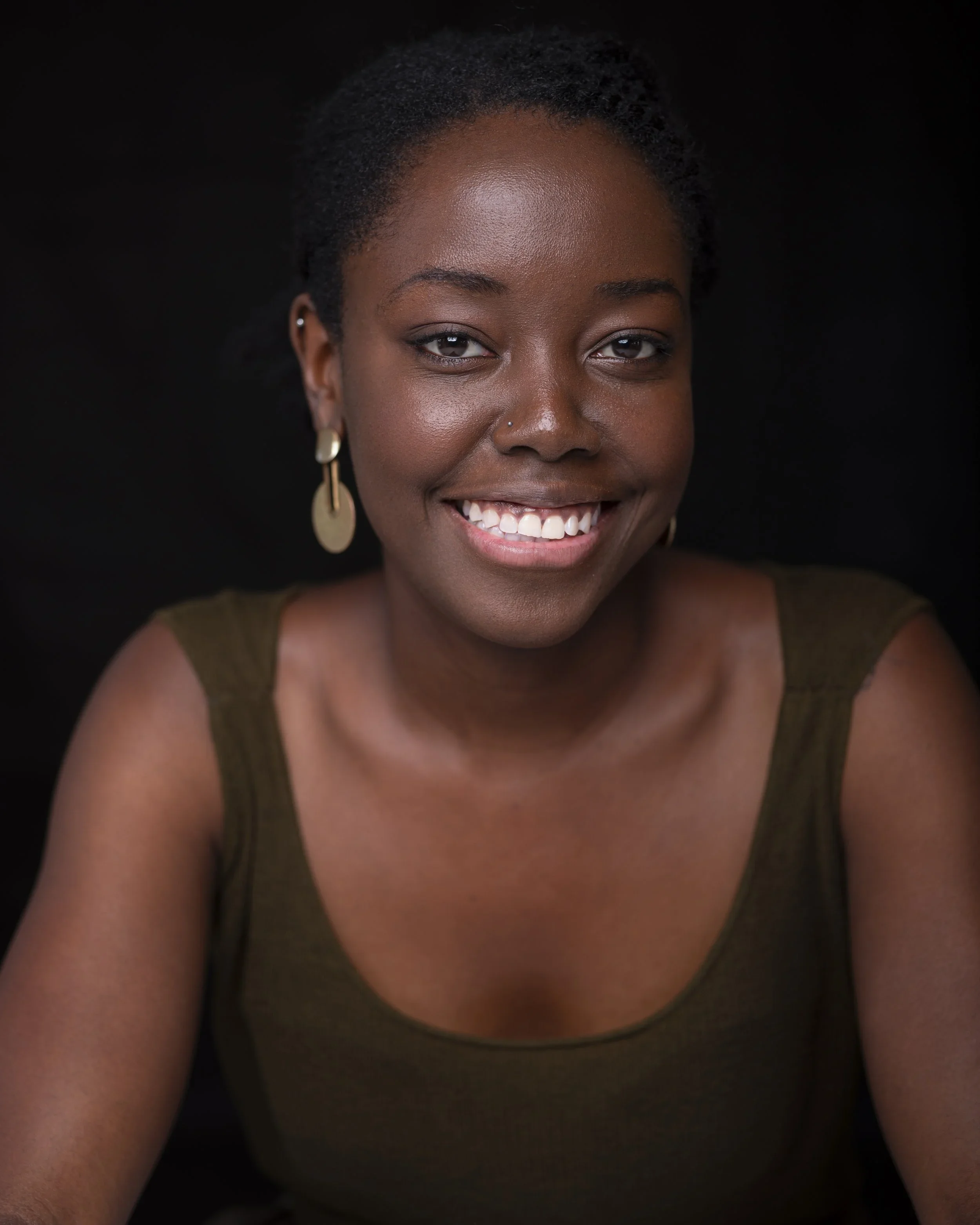
Letaru Dralega
FELLOW
Letaru Dralega is a Ugandan Jamaican British artist and researcher interested in the material/immaterial dichotomy, particularly in African and Afrodiasporic ontologies. She experiments with collage, painting, installation, and sound to examine themes of memory, belonging, and the postcolonial condition.
A social scientist by training she holds a Master of International Development with African studies (2019) from Sciences Po Paris, France. She co-founded Afropocene Studio Lab, an interdisciplinary research space in Kampala dedicated to exploring the cultural aesthetics and philosophies of science that are borne of the developing intersection of African/Afro-diaspora culture with technology. She co-directs Afropocene: The Capsule, an Independent public art platform established in 2023 to promote experimental, immersive, and alternative exhibition formats in Kampala.
-
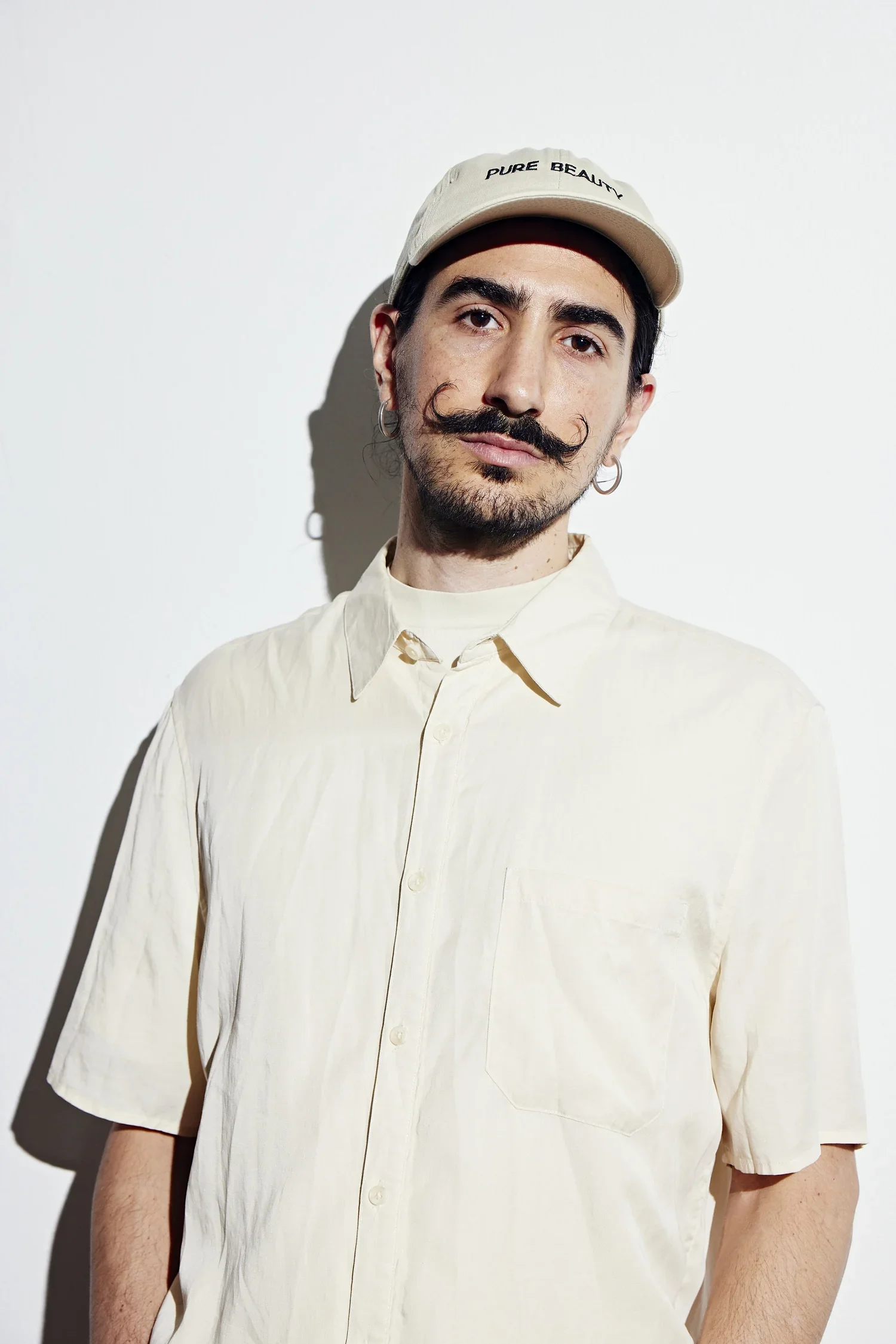
Nimrod Astarhan
FELLOW
Nimrod Astarhan is an artist, technologist, and educator. Their practice is based on a post-conceptual approach toward sculpture, installation, and media art, utilizing collaborations, digital technology, and electronic mechanisms. Their research-creation involves activating non-visible portions of the electromagnetic spectrum contextualized through material, diasporic, historical, and philosophical lenses. They exhibited and initiated group projects in Europe, the US, and the International Space Station. Recent showings include the Gwangju Biennial Pavilion Project, Ars Electronica, The Ammerman Center Biennial Symposium on Arts & Technology, Die Digitale Düsseldorf, and xCoAx in Graz, Austria. Last year, they received grants and awards from the Municipal Arts League of Chicago and the Arts, Science + Culture Initiative at the University of Chicago, among others. Nimrod holds an MFA in Art and Technology Studies from the School of the Art Institute of Chicago, where they teach at the Film, Video, New Media, and Animation department, alongside their position at the Multidisciplinary Art School at Shenkar College of Engineering, Art, and Design.
2024 LAB DIRECTORS
-
Founder & Director
Muindi Fanuel Muindi is a social practice artist, philosopher, and poet, with Lacustrine Bantu roots in the Rift Forests of Eastern Congo and the Mara Wetlands in Tanzania.
Muindi is co-founder of the Fyrthyr Institute for Unsettling Technologies, coordinator of the “Prototyping Social Forms” and “Alter-Eco” research streams at the Synthesis Center, an organizer at the Center for Concrete and Abstract Machines, an associate editor of the journal AI & Society, and co-producer and audio engineer for the Forested Niches podcast. Previously, Muindi was a member of the “After School”, “Technologies of Critical Conscientization”, and “Unwriting Nature” research communities at the Center for Art Design + Social Research.
-
Hyperion Çacatzin Yvaire lo Saga (ha/li/he) is a detribalized Indigenous (Atakapa Ishak) and Louisianan Kréyòl father, designer, researcher, post-studio artist, and the founding architect of The Fyrthyr Star Rescue Cosmology.
His practice centers the investigation of alternative sovereignties and new territories emerging from climate chaos as well as the eradication of Indigenous-settler divisions, White Supremacy, and Christian personhood. His socially-captivated design work explores afterlives and aftershocks of collision through the investigation of administrative, legislative, technological, and wave phenomena.
As a kinmaker, Çacatzin is interested in the harmonious integration of collision-resultant byproducts into new sensory infrastructures for the betterment of solidarity practices across worlds and species.
Çacatzin is a research associate of the Partnering Lab and has held residencies at Studio at the Edge of The World, Queer.Archive.Work, National Parks (Boston Harbor Islands), Center for Arts, Design + Social Research. He has published work in Writing the Land: Foodways and Social Justice, New York University Environmental Law Journal, 900 Chicon literary magazine, and been invited to speak at Rethinking Landscape, SDNow4, New Moon Mycology Summit, and Spirituality and the Arts.
Li holds an MFA from the School of the Museum of Fine Arts at Tufts University and advances multi-species jurisprudence as the principal researcher in the Lak Yapùhne Center for Jurisgenerative Arts.
Special Guests
-
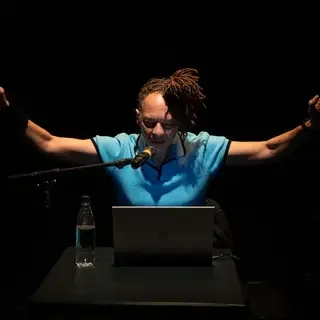
Thomas DeFrantz
Thomas F. DeFrantz directs SLIPPAGE: Performance | Culture | Technology; the group explores emerging technology in live performance applications. He believes in our shared capacity to do better and engage creative spirit for a collective good that is anti-racist, proto-feminist, and queer affirming.
Creative Projects include Queer Theory! An Academic Travesty commissioned by the Theater Offensive of Boston and the Flynn Center for the Arts; fastDANCEpast, created for the Detroit Institute for the Arts; reVERSE-gesture-reVIEW commissioned by the Nasher Museum in response to the work of Kara Walker, January, 2017.
DeFrantz also onvenes the Black Performance Theory working group as well as the Collegium for African Diaspora Dance, a growing consortium of 325 researchers committed to exploring Black dance practices in writing.
-
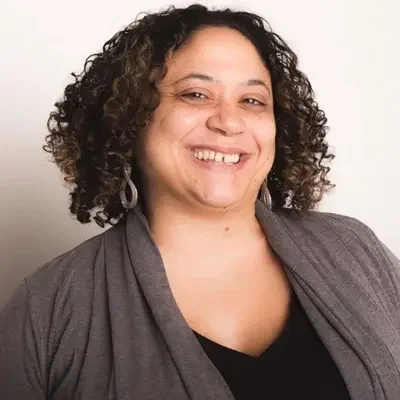
Meida McNeal
Meida Teresa McNeal is the Director of Honey Pot Performance, an Afro-feminist collective dedicated to critical performance and public humanities. Recent projects include ways of knowing (2019), a performance and media project exploring systems of knowledge production that premiered at Experimental Station in November 2019 and The Chicago Black Social Culture Map (2019), an online map, community archiving, and live program series exploring Chicago’s Black social lineage from the Great Migration to the present, which included 6 programs across the city’s South, West, and North sides.
-
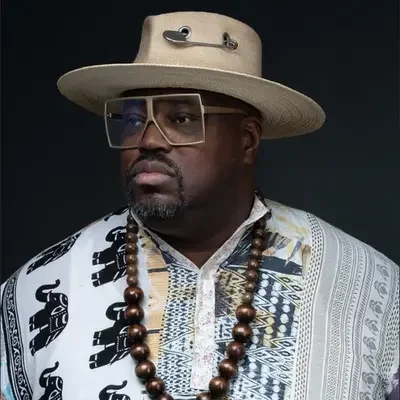
Duane Powell
Duane Powell is a Chicago-based music historian, DJ, promoter, and tastemaker. In the 1980s, Powell was one of the most important promoters in the Chicago House music scene. As a promoter, he launched the SOUNDROTATION brand in 1999, further cultivating the underground soul scene in Chicago. As a historian, Powell created the interactive lecture series Rear View Mirror Sessions at UChicago Arts, Stanford University, Detroit Institute Of Arts and Chicago Public Library. Powell has held residencies at the House Of Blues, Virgin Hotel, Museum Of Contemporary Art and Navy Pier. He is a program partner with the Rebuild Foundation as well as a board member of the Frankie Knuckles Foundation.
-

T. J. Demos
T. J. Demos is an award-winning writer on contemporary art, global politics, and ecology. He is Professor in the Department of the History of Art and Visual Culture, at University of California, Santa Cruz, and Founder and Director of its Center for Creative Ecologies. He writes widely on the intersection of contemporary art, global politics, and ecology, and his essays have appeared in magazines, journals, and catalogues worldwide. His published work centers broadly on the conjunction of art and politics, examining the ability of artistic practice to invent innovative and experimental strategies that challenge dominant social, political, and economic conventions.
Demos is the author of numerous books, including Against the Anthropocene: Visual Culture and Environment Today (Sternberg Press, 2017); Decolonizing Nature: Contemporary Art and the Politics of Ecology (Sternberg Press, 2016); The Migrant Image: The Art and Politics of Documentary during Global Crisis (Duke University Press, 2013)—winner of the College Art Association’s 2014 Frank Jewett Mather Award—and Return to the Postcolony: Spectres of Colonialism in Contemporary Art (Sternberg Press, 2013).n goes here
2024 LAB FACILITATORS
-
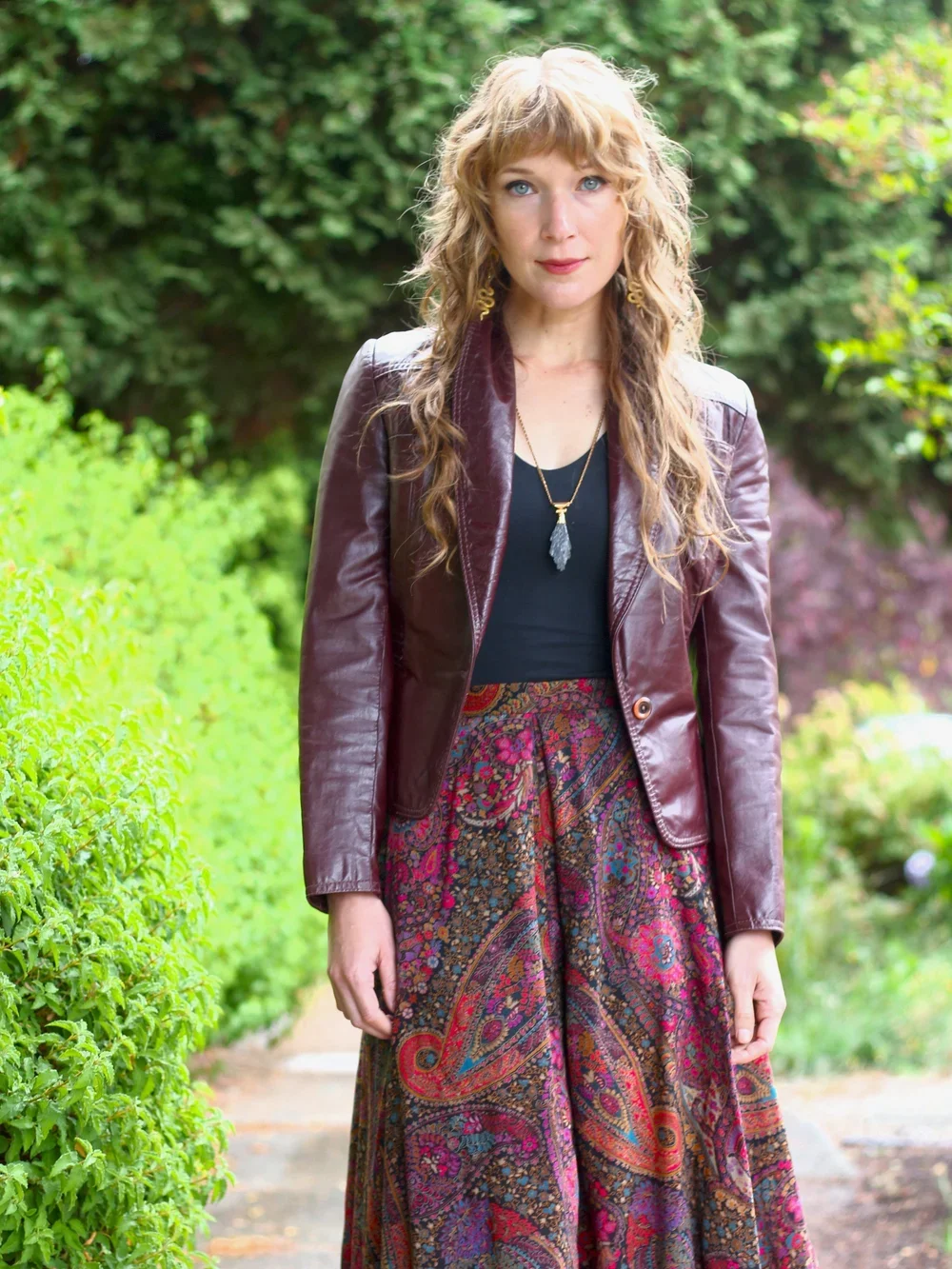
Ylfa Muindi
-
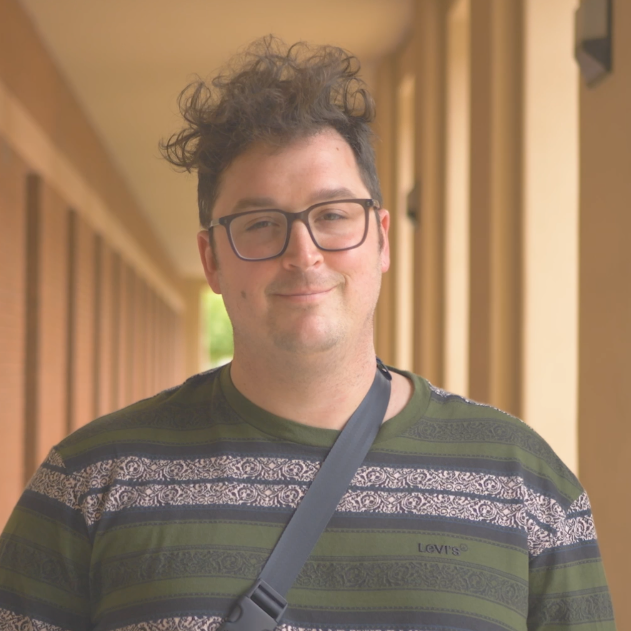
grace grace grace
-

Juan Eduardo Flores
-

Kim Nucci
Timetable of Public Events
Public Talk - Muindi Fanuel Muindi - (De-/Re-)Constructing Worlds
Friday, May 10, 5pm - 6:30pm
Life on our beautiful blue-green planet is being depleted and devastated by a global apartheid regime engineered by a Racial Capitalist Empire bent on planetary ecocide. Our arts give us a visceral sense of this deathly reality, our philosophies enable us to thoroughly conceive of this deathly reality, and our sciences enable us to predict this deathly reality. Yet our arts, philosophies, and sciences can do little in and of themselves to stop the unfolding of this deathly reality: art-qua-art, philosophy-qua-philosophy, and science-qua-science cannot, in and of themselves, make a better world.
Poet, philosopher, and social practice artist, Muindi Fanuel Muindi will make the case that artists, philosophers, and scientists who aim to alter this deathly reality are being called to act as world-makers in addition and in excess of acting as artists, philosophers, and scientists.
Post-studio artist and kin-maker, Hyperion Çacatzin Yvaire lo Saga, will serve as critical respondent and facilitate a question and answer session.
Futurhythmachines: House
Day Long Event - Saturday May 11, 2024
Thanks to drum machines, sound systems, repurposed warehouses and basements, 1980s Chicago House Music opened up a future that was black, brown and queer. DJs invented new ways of keeping and marking time in community. In the years since, computation has made music-making more accessible. What kinds of collectivities are still to come?
Combining complementary modes of thinking, making, and performing, Futurhythmachines: House (FRM:House) is a daylong public event organized during the BADS_lab, featuring a DIY synthesizer workshop, a panel discussion, and a DIY synth performance + reception.
FRM:House will reflect on social forms, expressive technics, and musical experience through Chicago House Music, discovering therein an art of forming fugitive publics and a science of probing sonic ecologies.
FRM:House - DIY-Synth Workshop
1200pm - 330pm - Saturday May 11, 2024
In the workshop, participants will use inexpensive microcontrollers to create their own modular Chicago house rhythm machines we are calling EARTH. In the workshop, we will go over some soldering basics, but focus on musical interactions between modules. This means that with a friend, you can team up to create a more robust musical landscape.
We’ll provide some starter software for CCAM EARTH, but since the Daisy is a microcontroller, in the future you can upload code written in a number of different languages, including Max/MSP Gen~ (which we’ll use).
Spots are limited to 15, and a registration of $25 dollars will hold you spot (subsidized generously by our sponsors below).
FRM:House - Panel
4pm - 530pm - Saturday May 11, 2024
BADS_lab organizer Muindi Fanuel Muindi (philosopher & poet) will moderate a panel with Dr. Thomas DeFrantz (black social dance historian & technology theorist), DJ Duane Powell (House DJ & music historian), and Meida McNeal (multi-disciplinary performance artist & critical ethnographer) to discuss the sonic and social architectures of Chicago House and their surrounds. The panel discussion will situate Chicago House within a long lineage of antiphonal experiments in the Black Arts that have gathered people in movement and in apposition to prevailing paradigms of capture, control, and containment.
FRM:House - Reception & DJ set by girly***
6pm - 730pm - Saturday May 11, 2024
Following the workshop and panel discussion, organizers at CCAM and the Fyrthyr invite the public to join them for bites, refreshments, music, and critical conversations inspired by the day's proceedings. You are also invited to learn more about the projects and missions of CCAM and the Fyrthyr and to get involved.
BADS_lab - Open Studio Hours
Monday & Tuesday, May 13 - 14, 4pm - 530pm
Thursday & Friday, May 16 - 17, 4pm - 530pm
Join BADS_lab research fellows and organizers from CCAM and the Fyrthyr in our pop-up atelier-lab at Watershed. Create and collaborate in community and participate in experiments in the Black Arts and Decolonial Sciences.
Public Talk - TJ Demos - Gaza: Colonial Violence, Ecocide, and Survival Media
Tuesday, May 14, 530pm - 7pm
This presentation offers an overview of Israeli attacks on Gaza as not only plausible genocide, but weaponized ecocide. Against the backdrop of Israeli settler colonialism, it also considers what Palestinian survival media looks like and how such media defines climate justice at the intersection of abolition and decolonization.
BADS_lab facilitator, Hyperion Çacatzin Yvaire lo Saga, will serve as critical respondent and facilitate a question and answer session.
Public Dialogue - The Therapeutic Imagination: A Conversation on Paralysis and Rebirth
Friday, May 17, 530pm - 7pm
For nearly six centuries, the forces of colonialism and racial capitalism have waged an unnameable war against our planet and her multitudes, with an extreme prejudice against her Black and Indigenous multitudes. Faced with an immense history of violence for which reparations have yet to be made and a genocidal, ethnocidal, and ecocidal horizon from which there is little refuge or respite to be had, many of us find that our imaginations are paralyzed by our shock at what has transpired and our dread of what is to come.
Join us for a conversation that will consider ways to mobilize our imaginations against the currents of empire, war, and accumulation by dispossession, denigration, and devastation.
BADS_lab facilitators, Muindi Fanuel Muindi and Hyperion Çacatzin Yvaire lo Saga, will serve as facilitators.
BADS_lab - Public Showcase & Closing Reception
Saturday, May 19, 2pm - 6pm
Join BADS_lab research fellows and organizers from CCAM and the Fyrthyr at Watershed as we present the outcomes of the collaborative and communal experiments in the Black Arts and Decolonial Sciences over the course of our residency at Watershed.
BADS_lab facilitators, Muindi Fanuel Muindi and Hyperion Çacatzin Yvaire lo Saga, will serve as facilitators.
